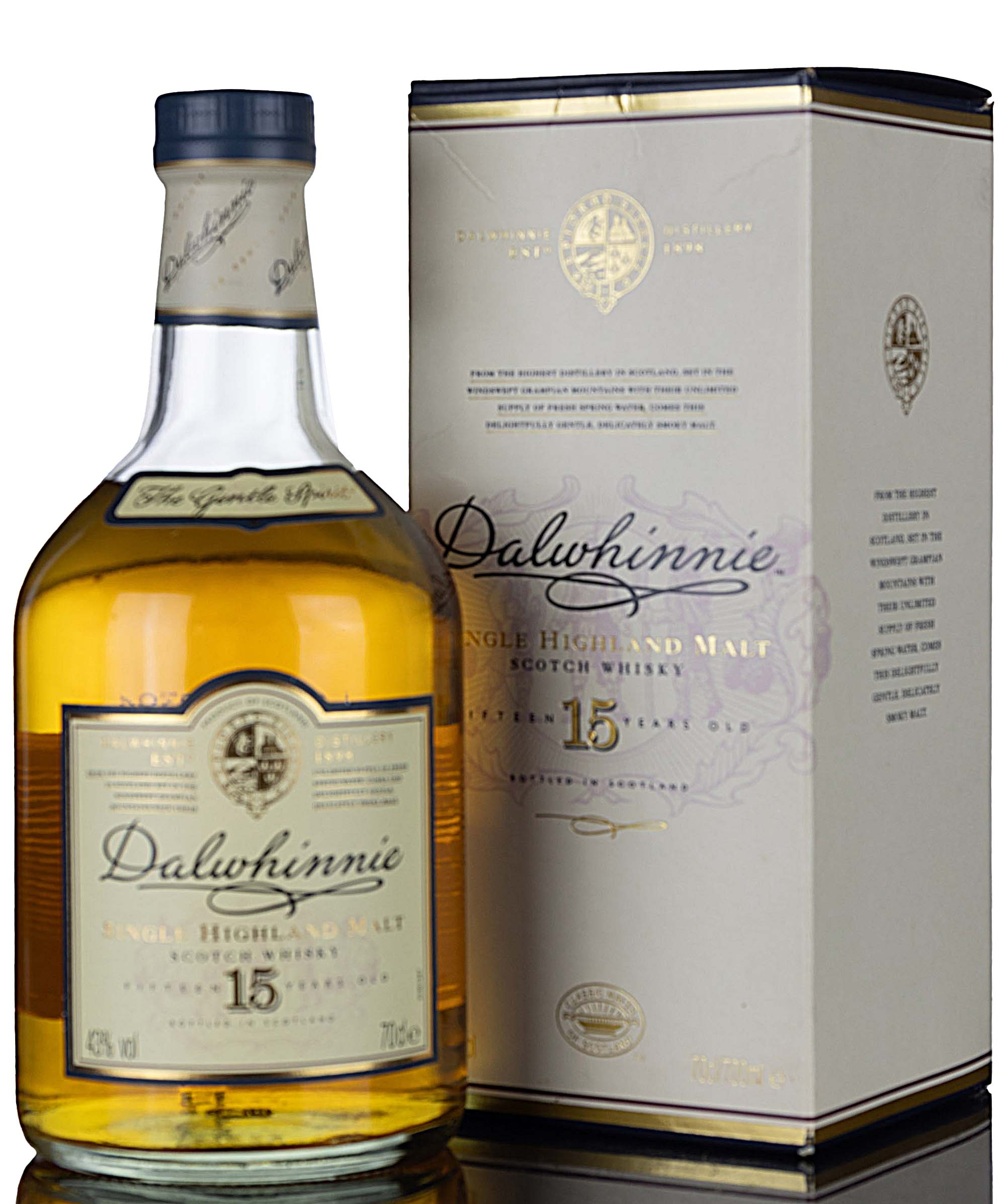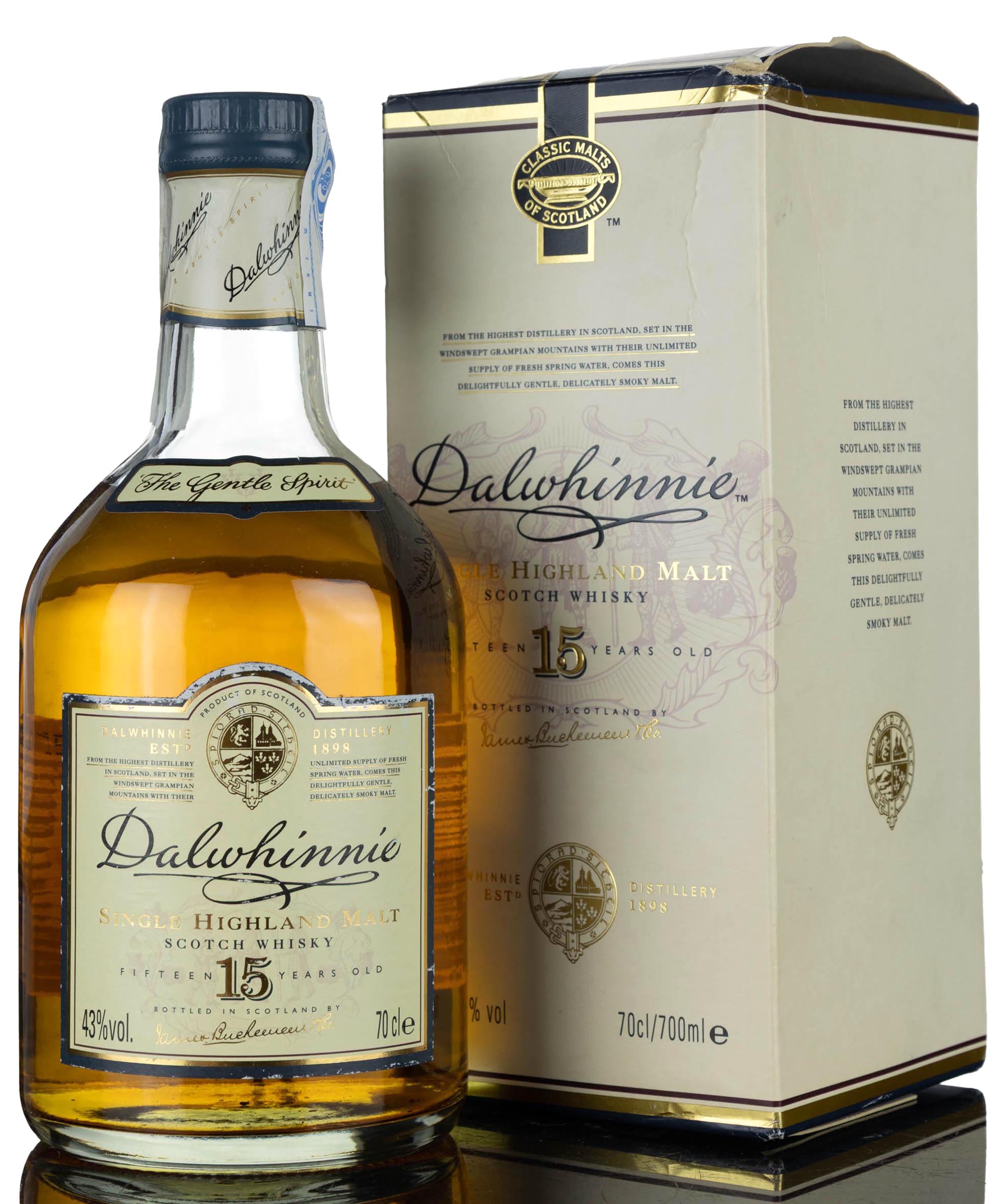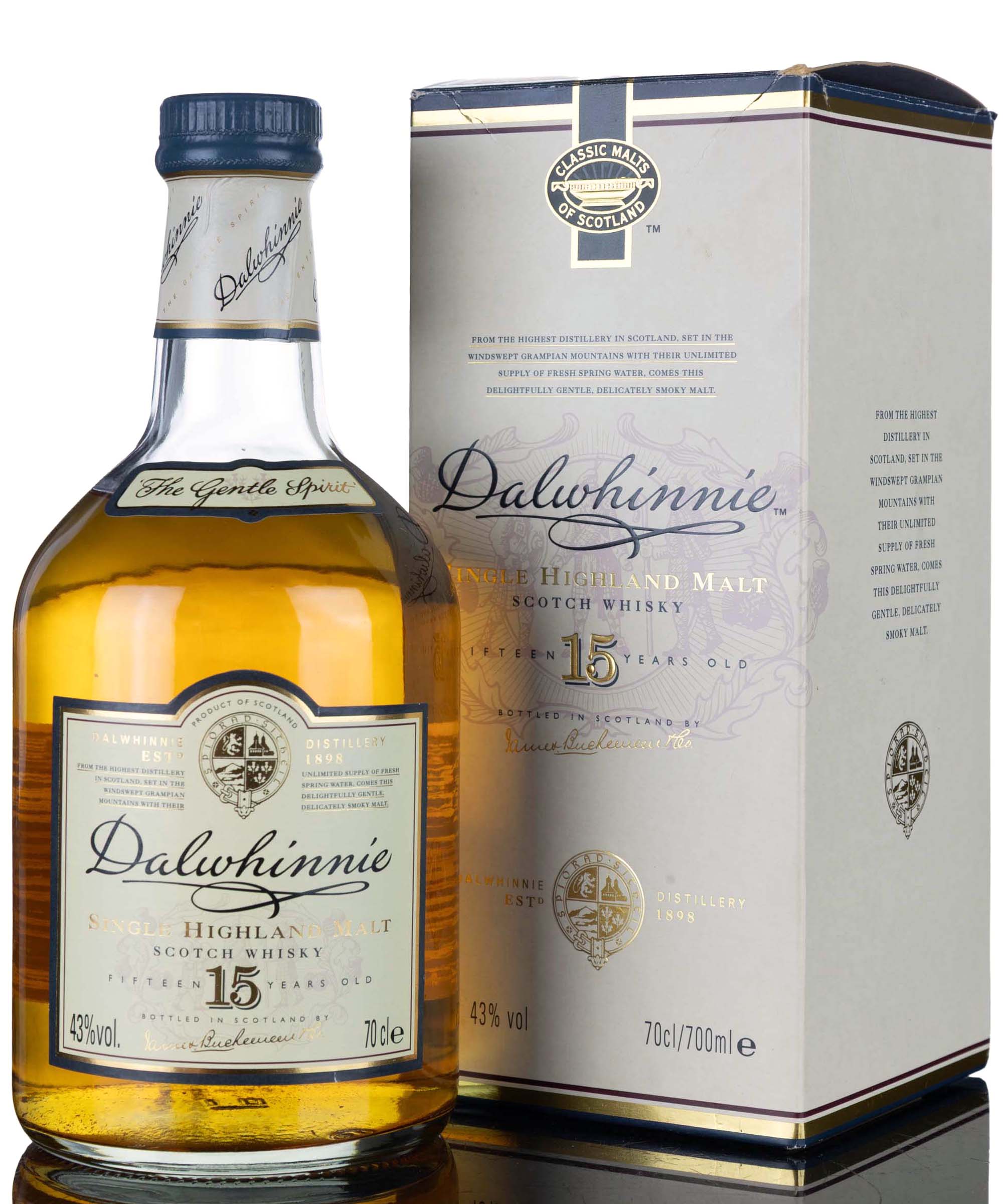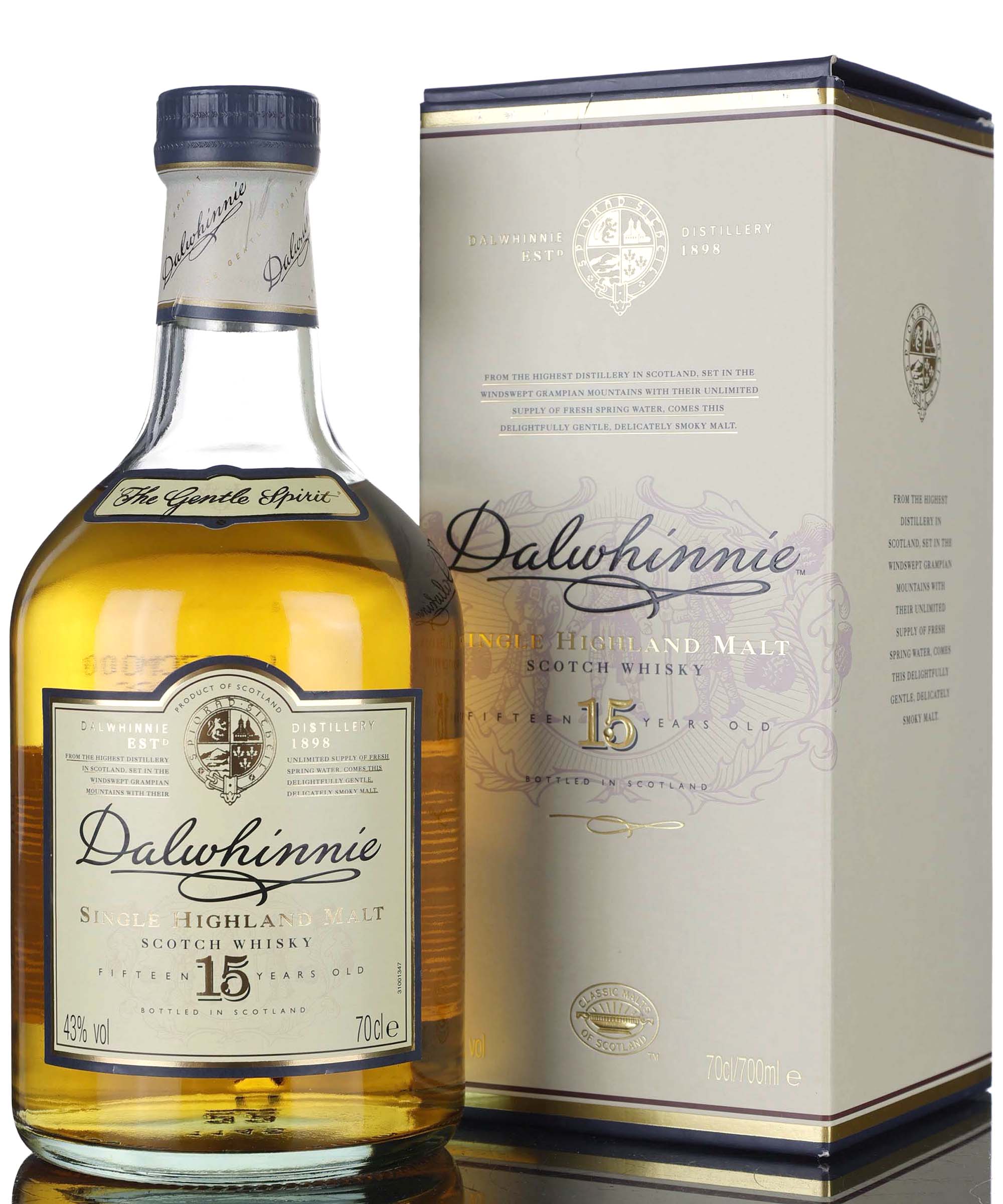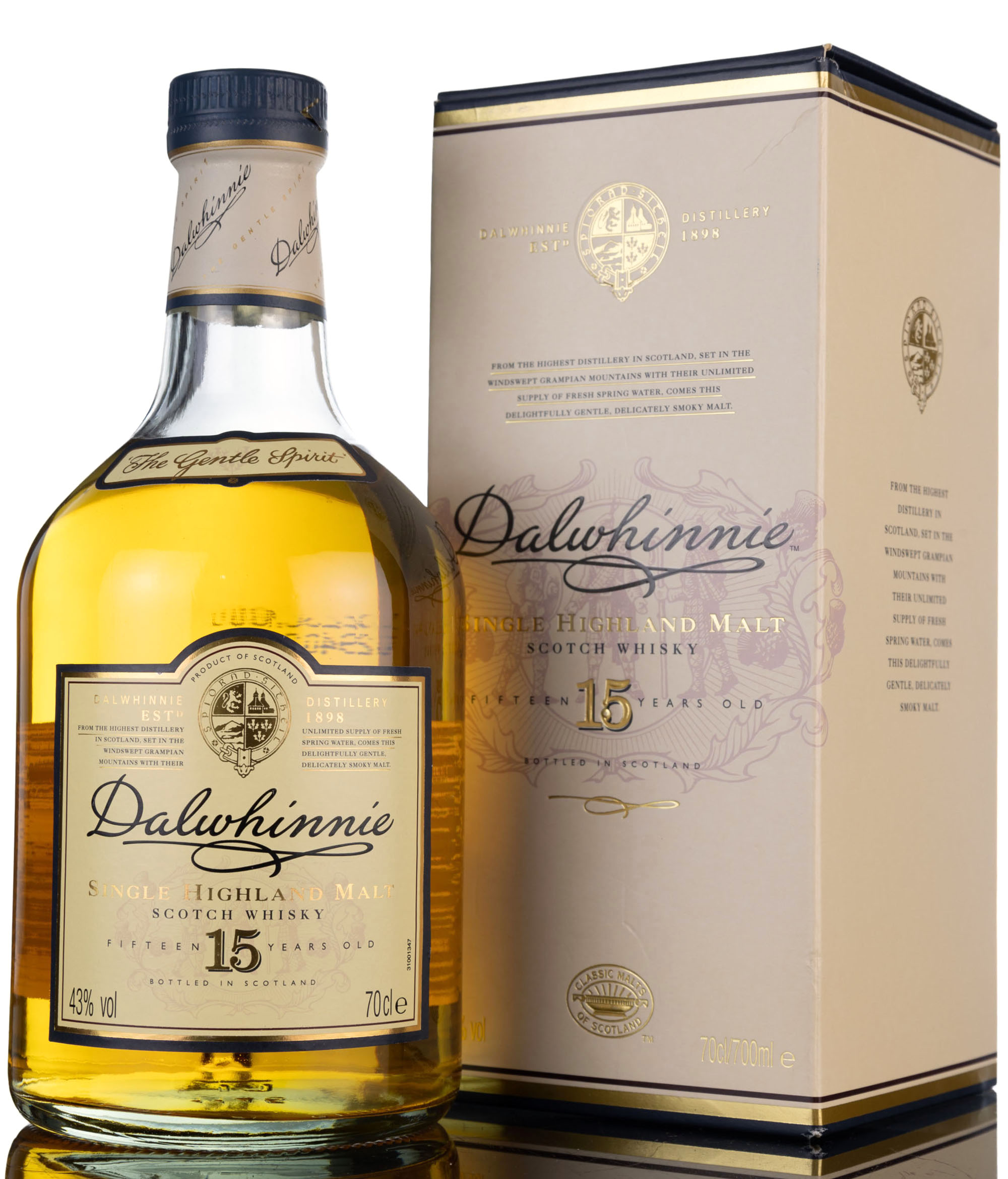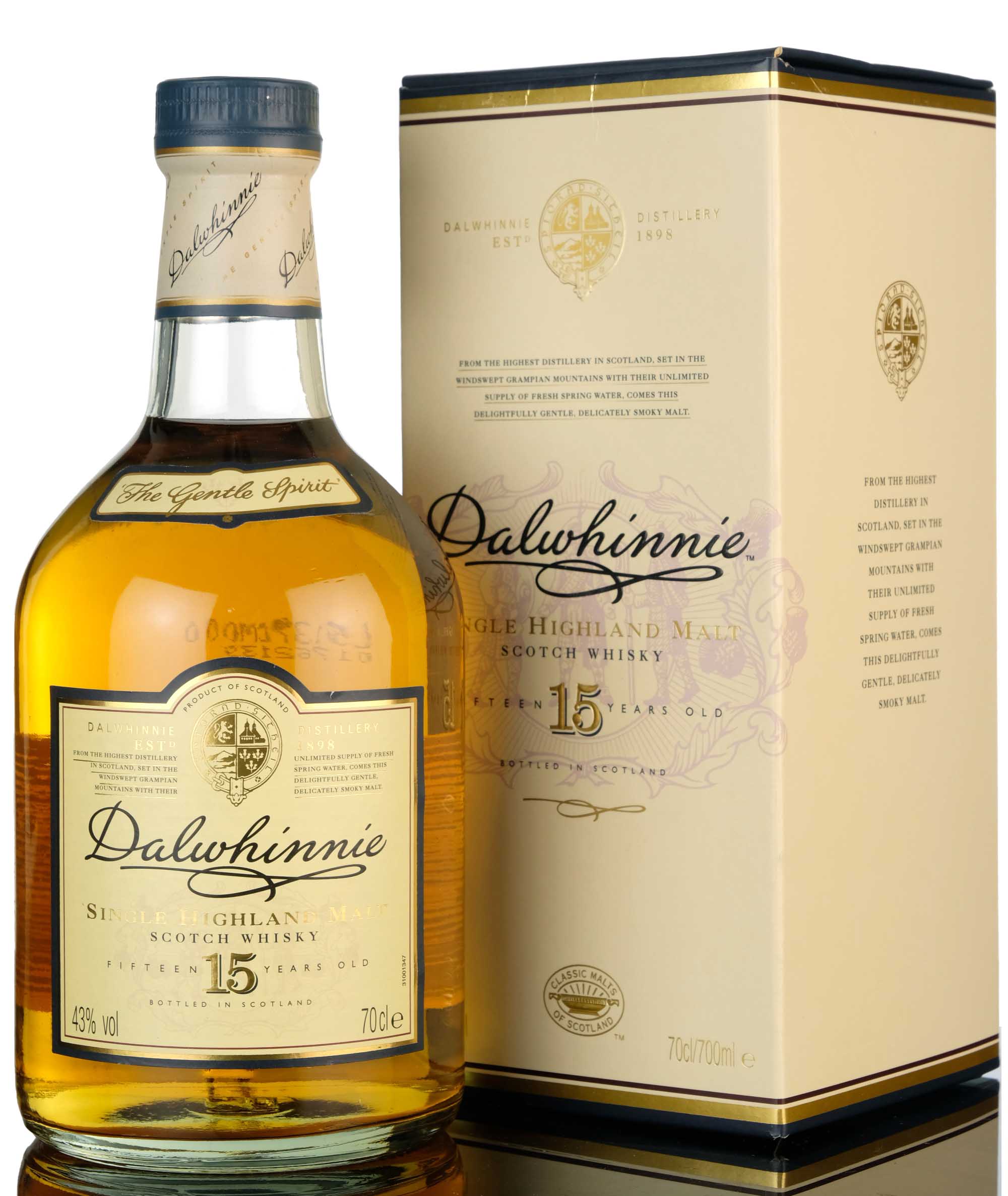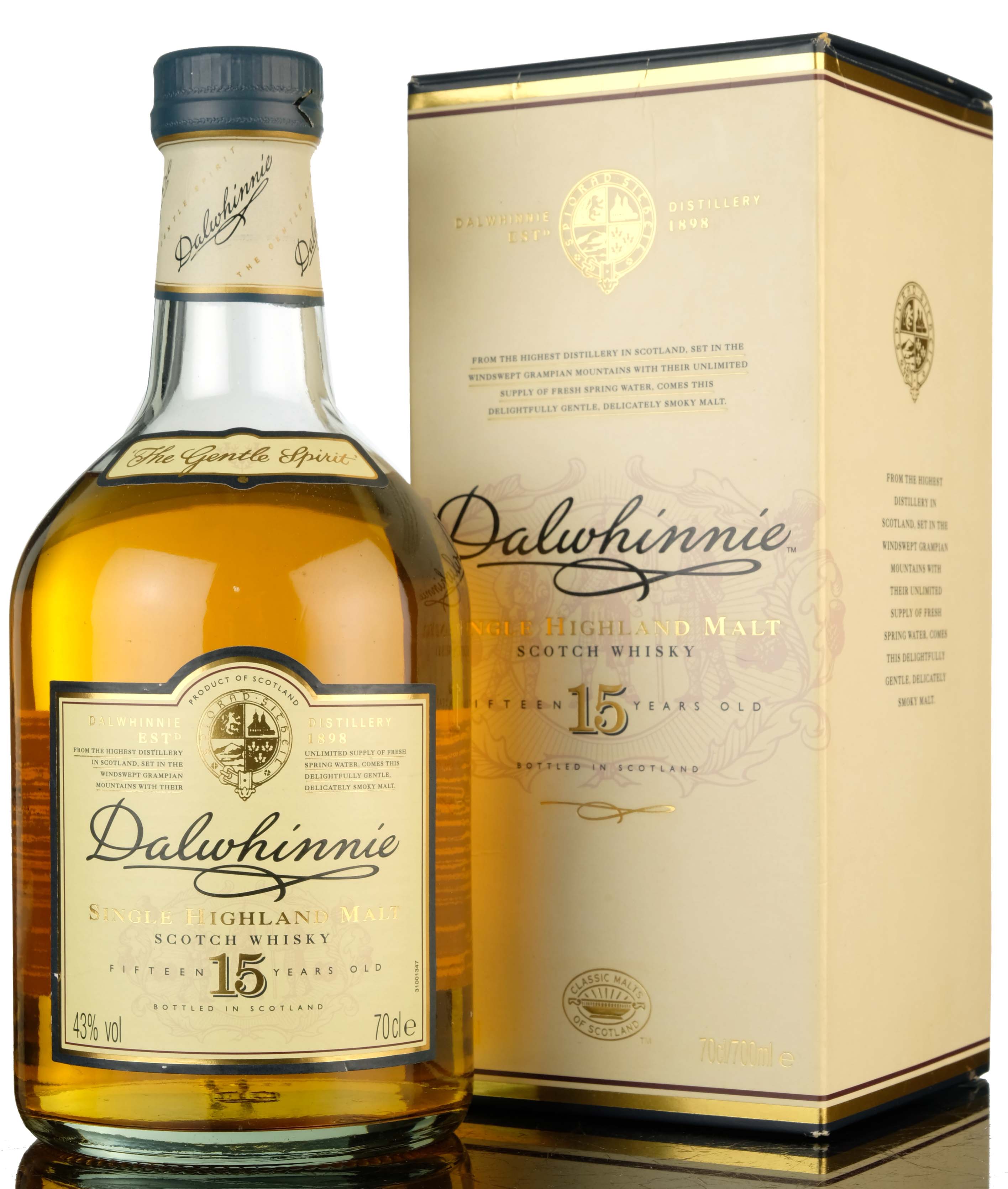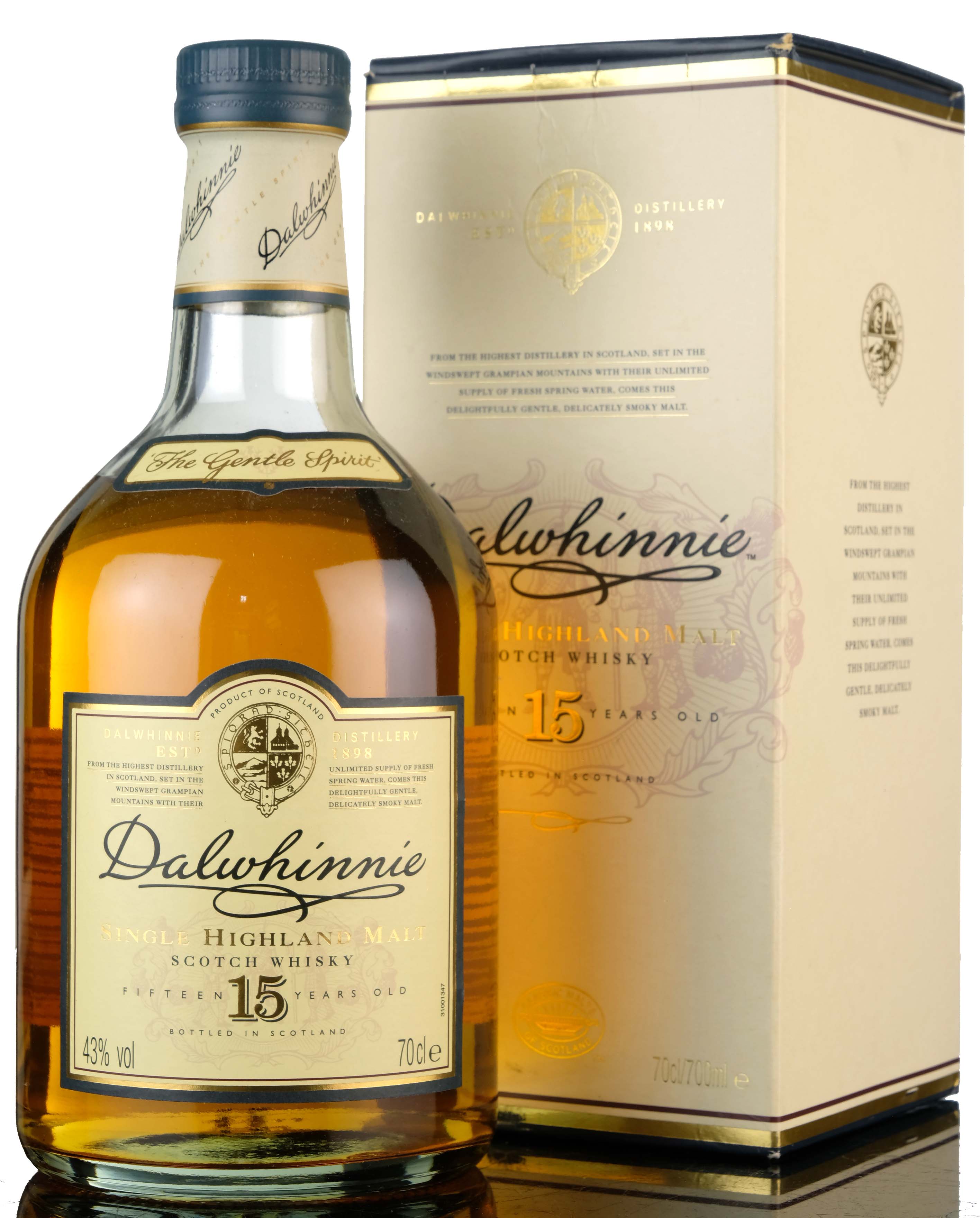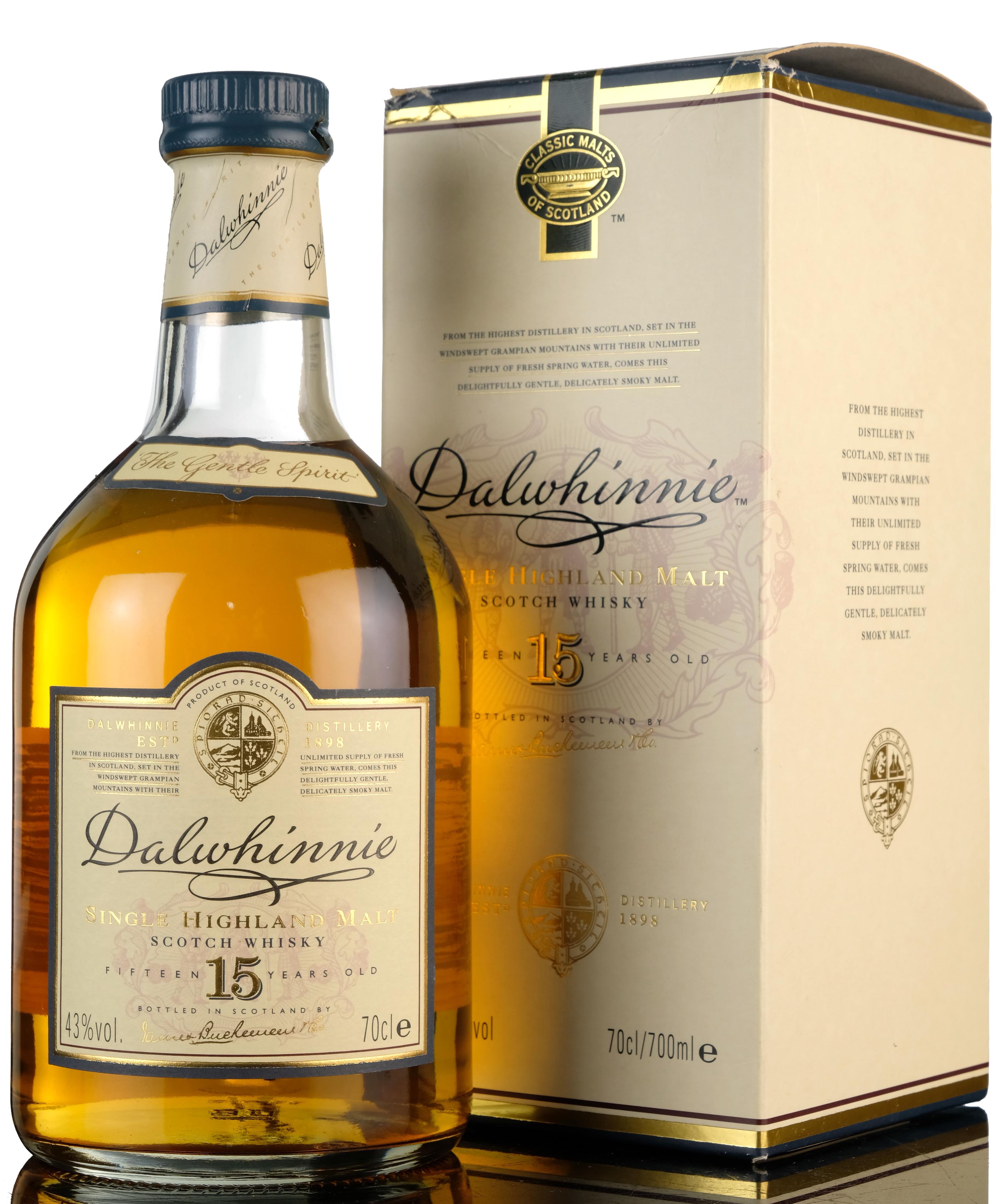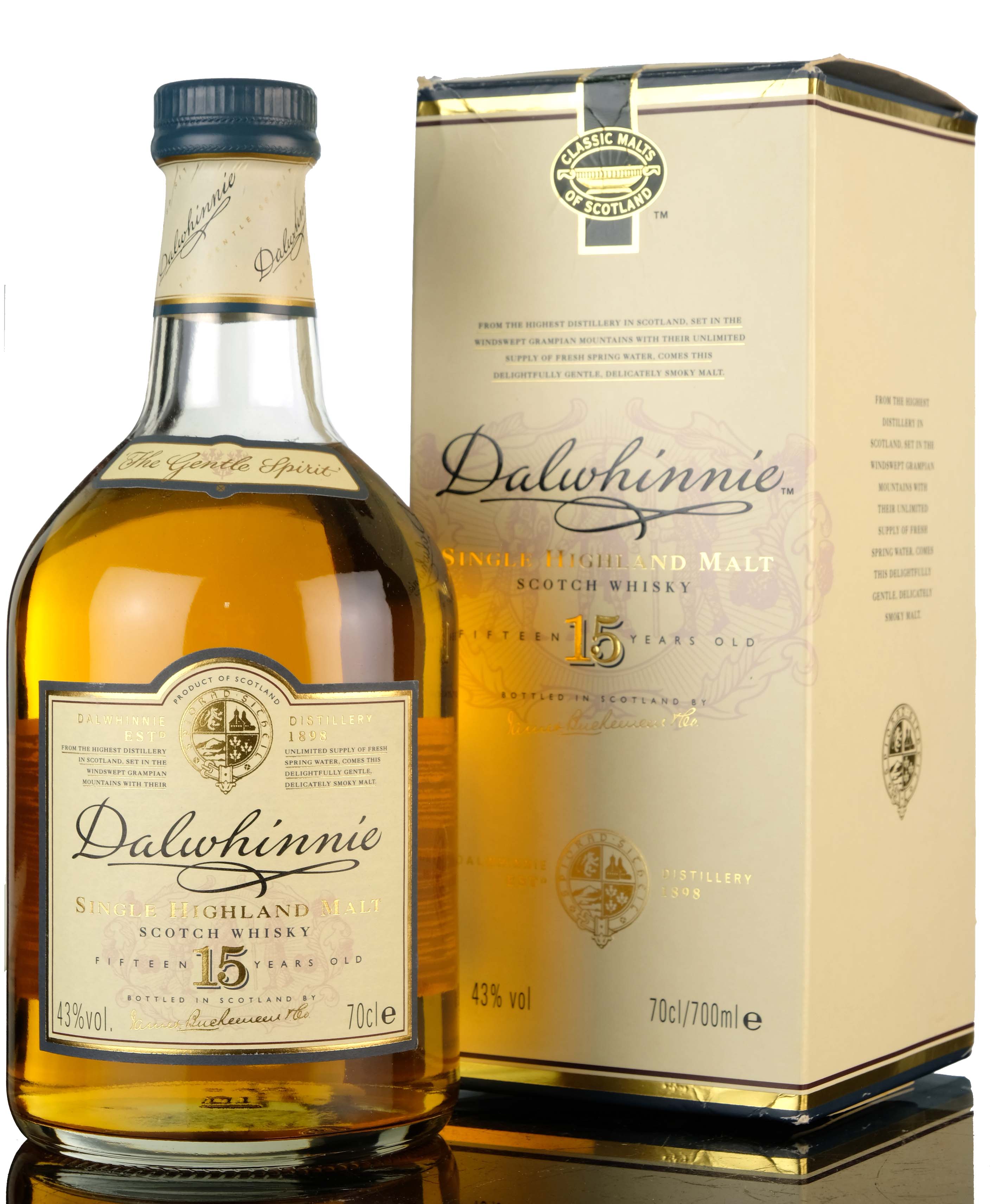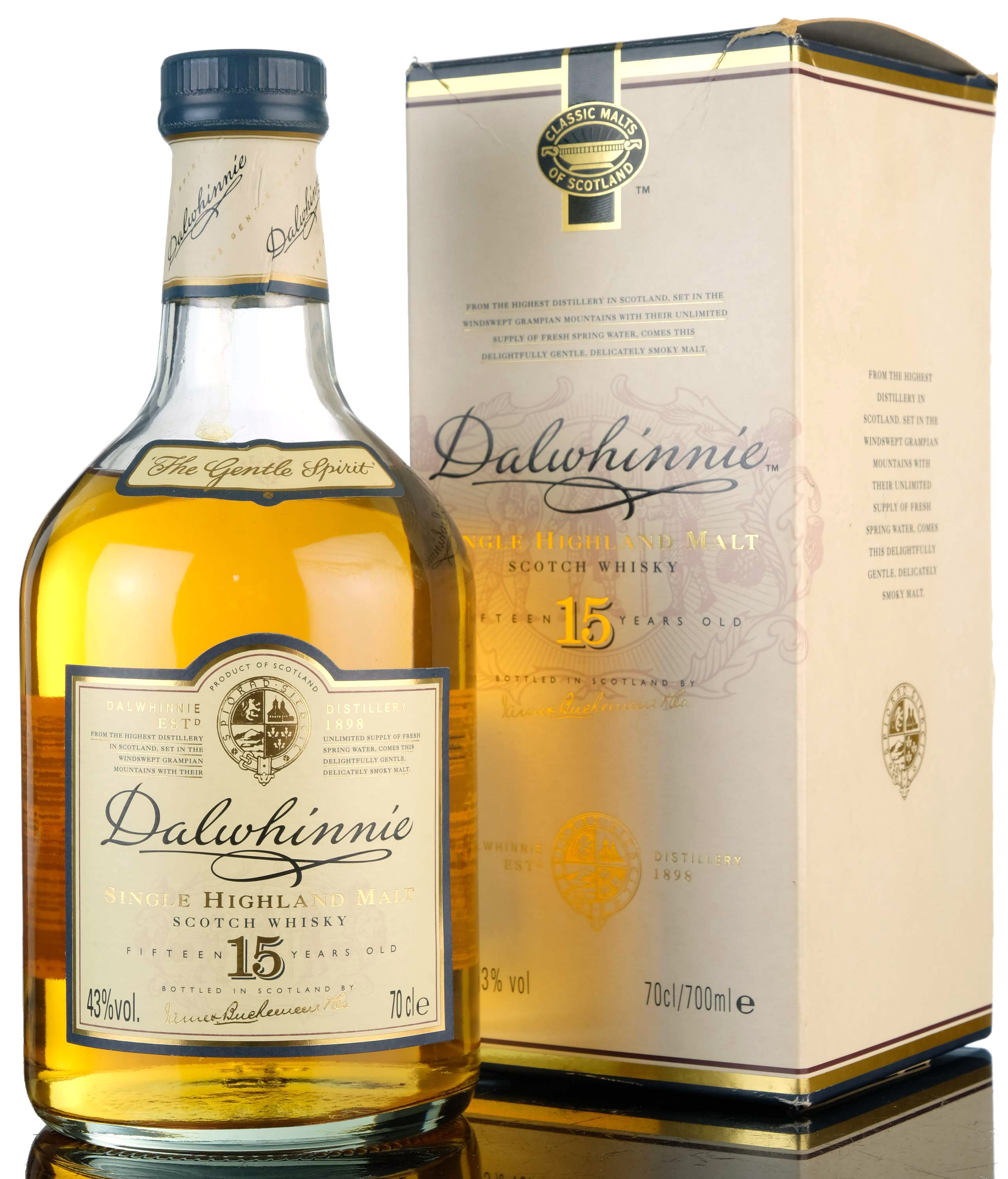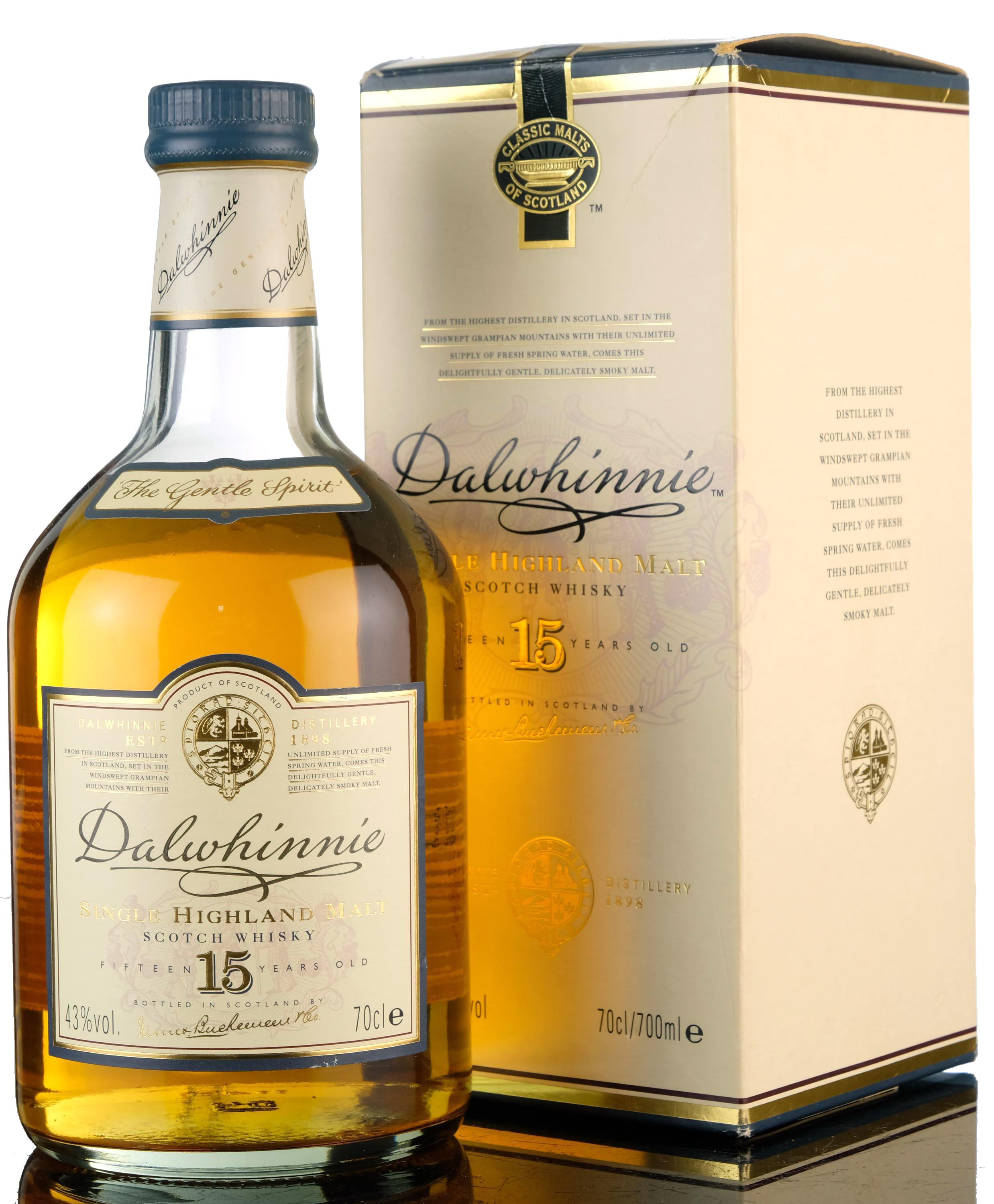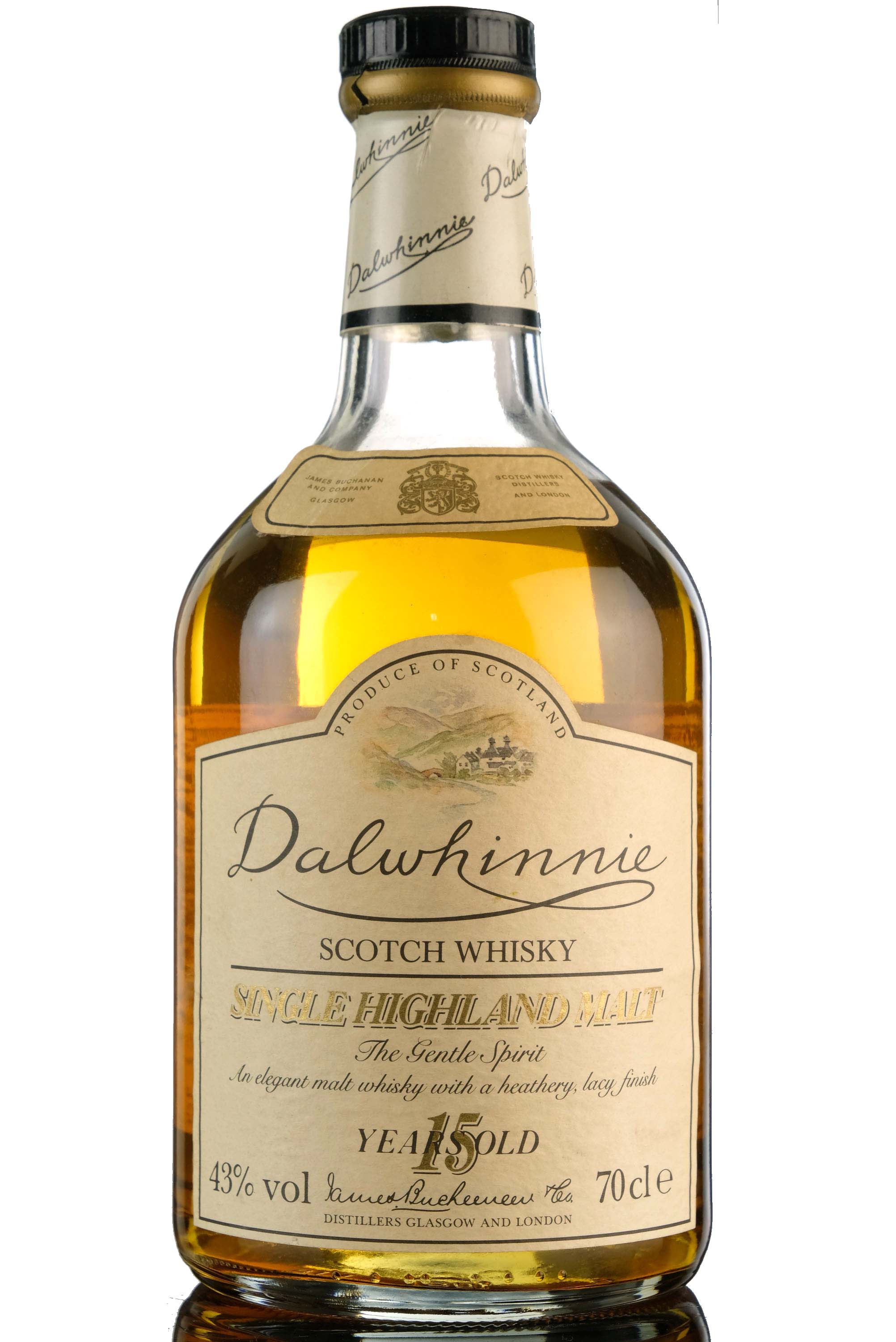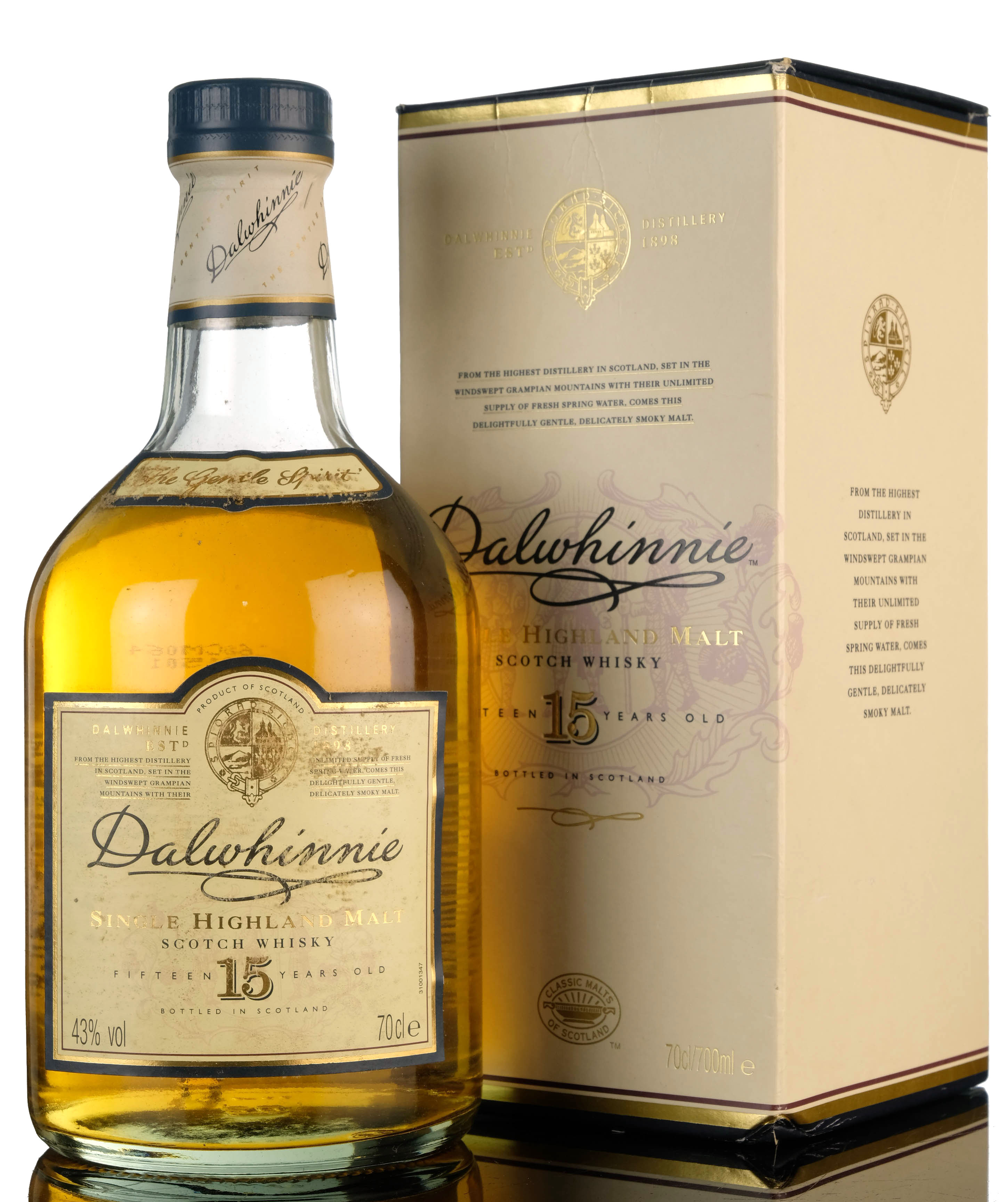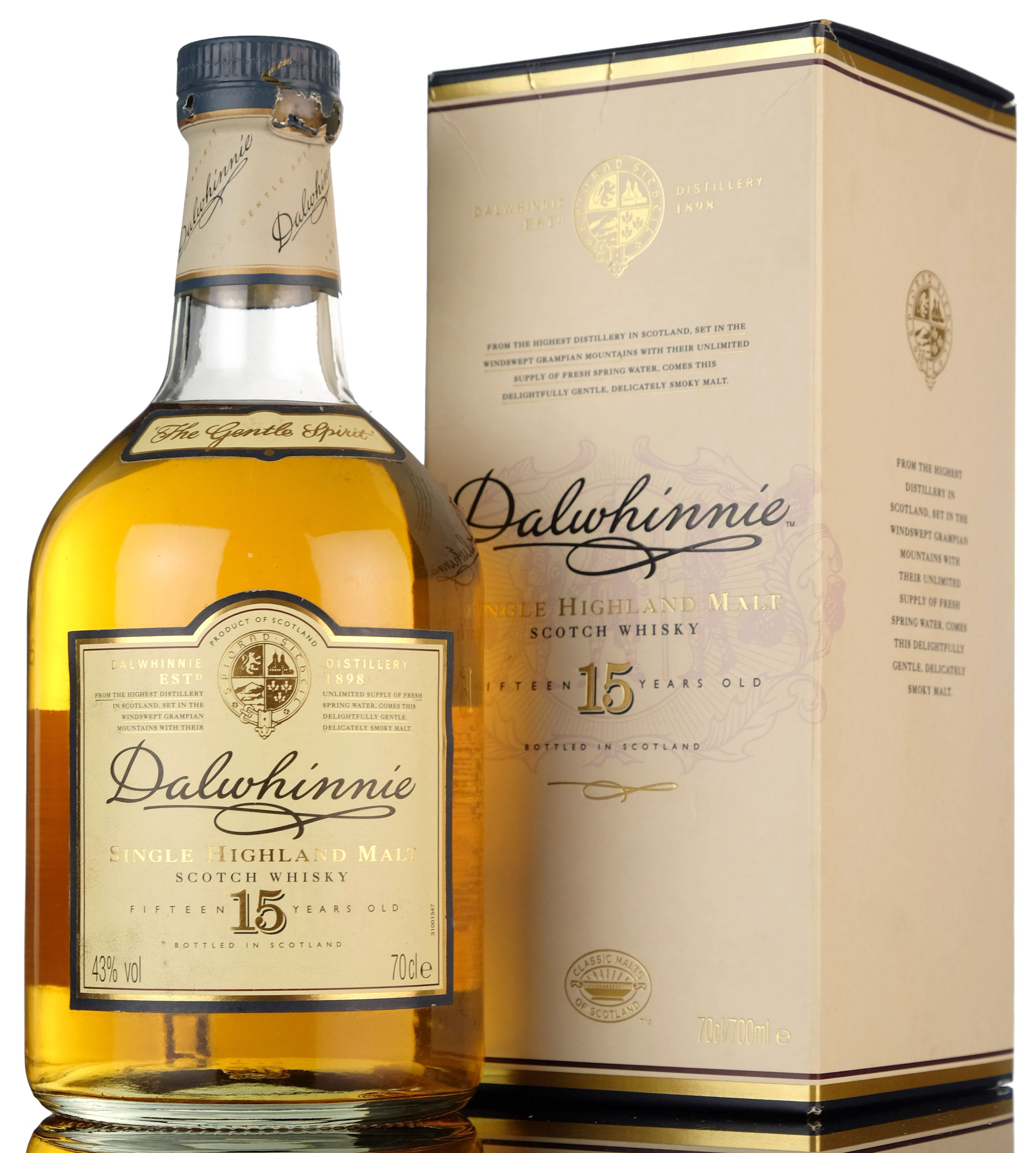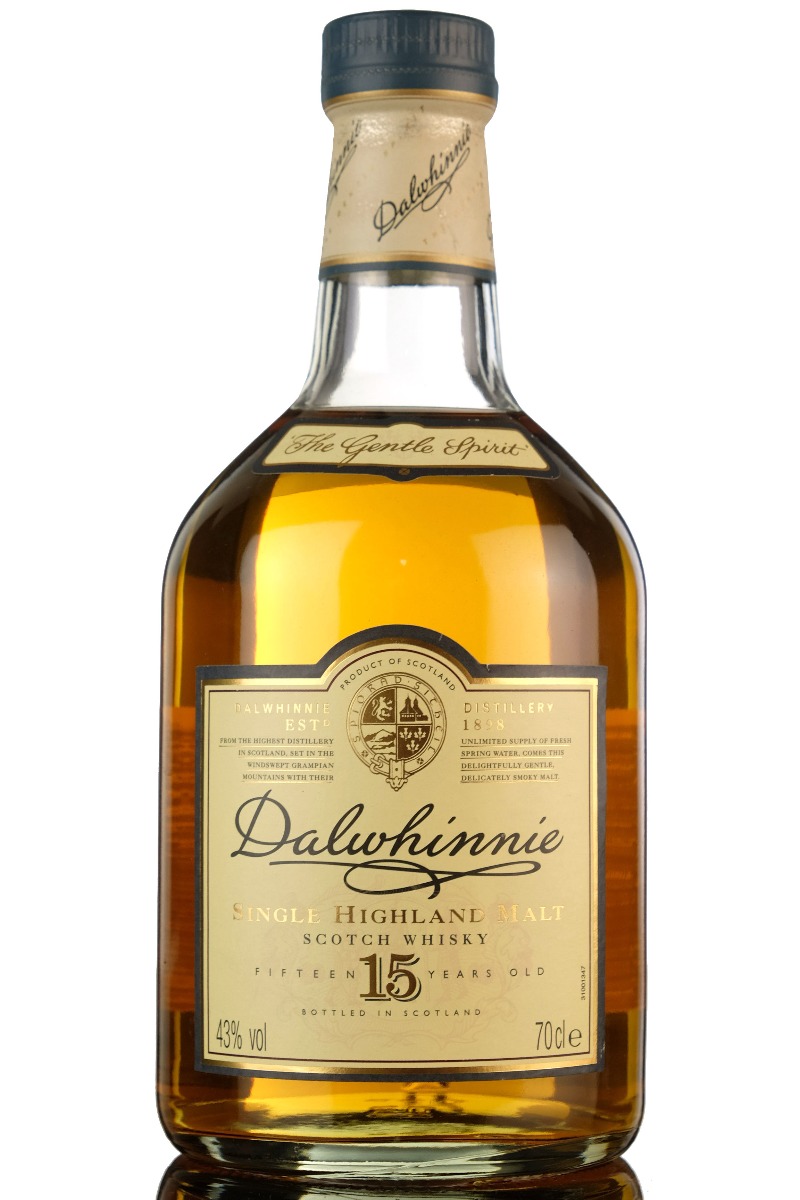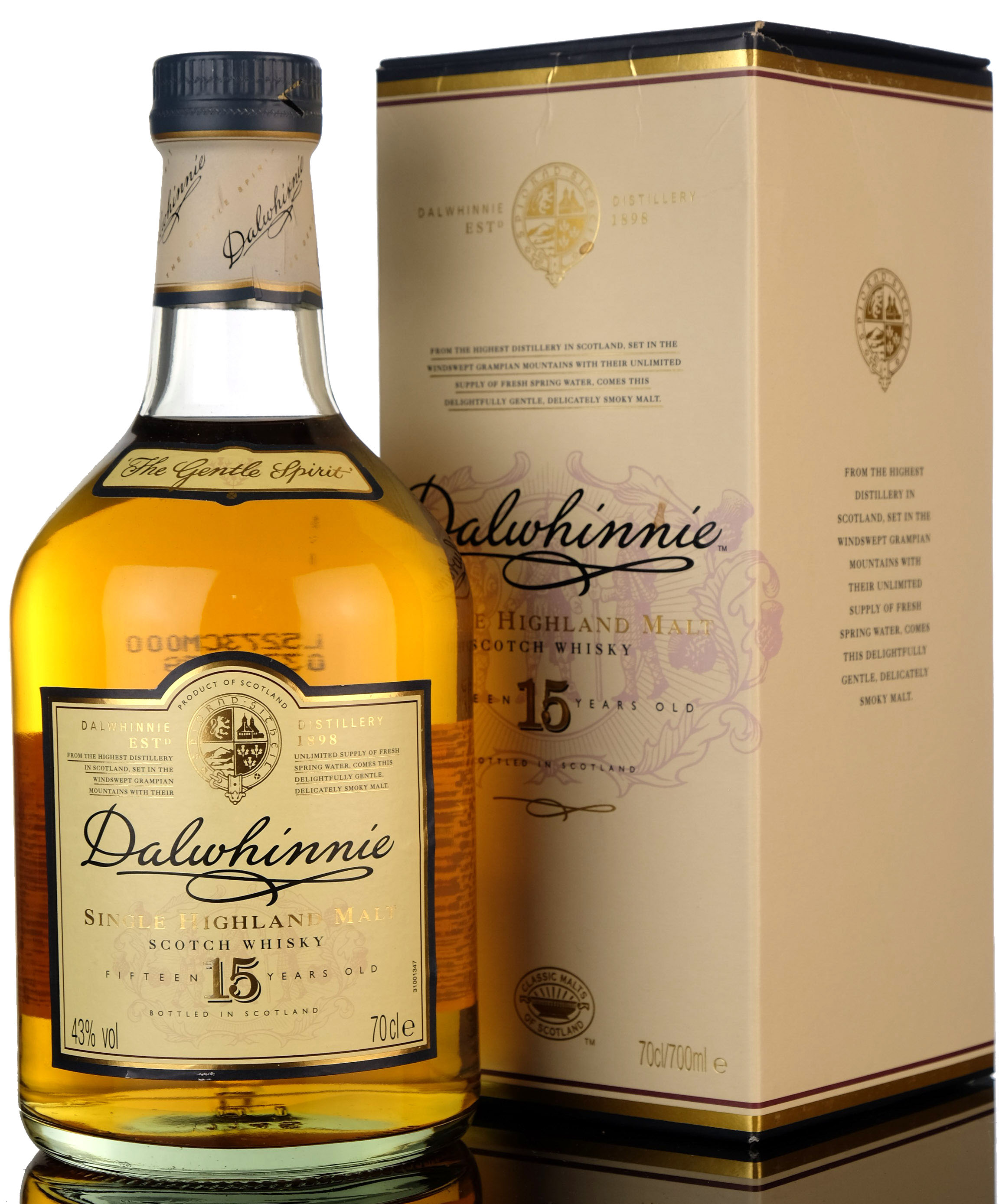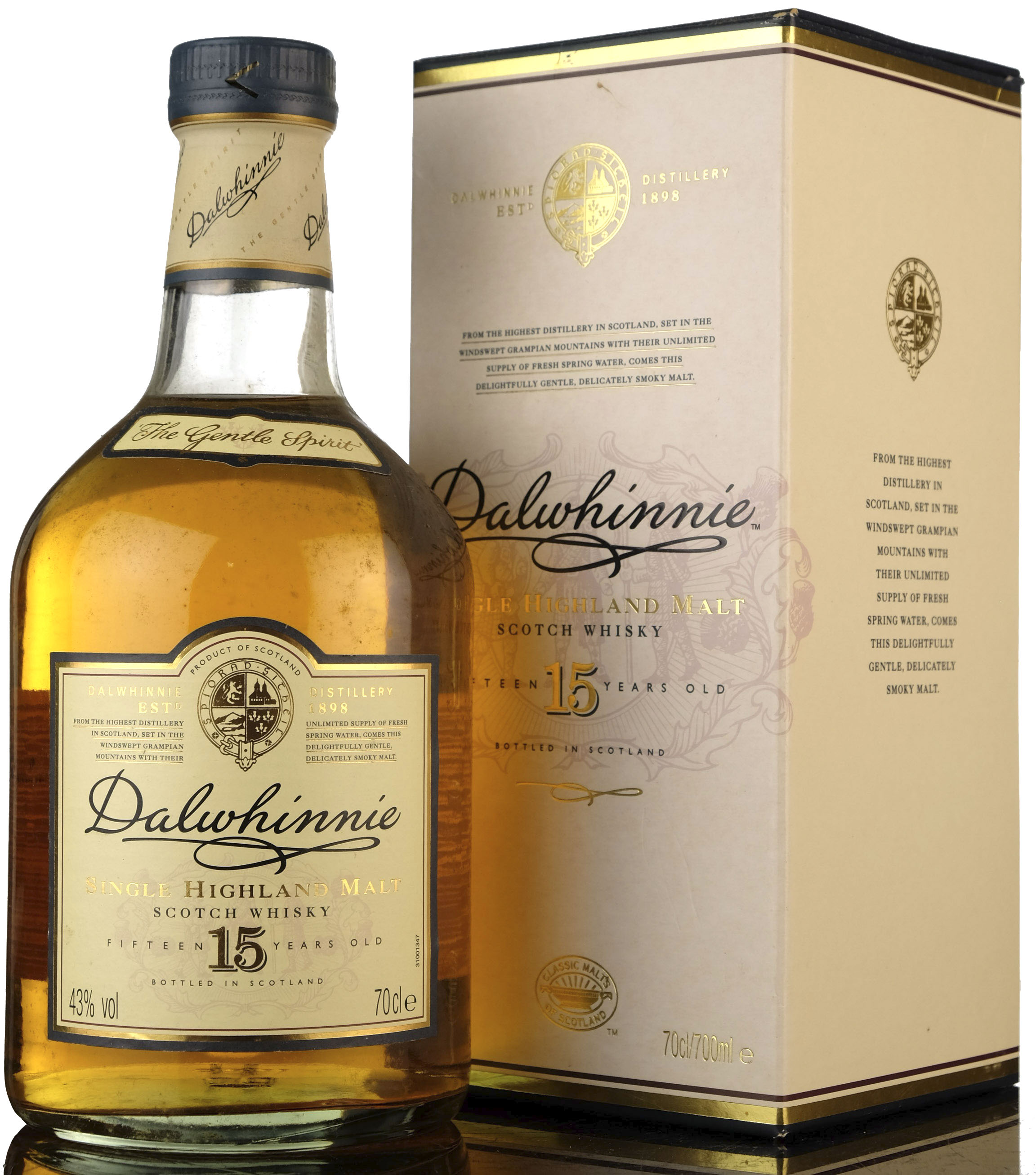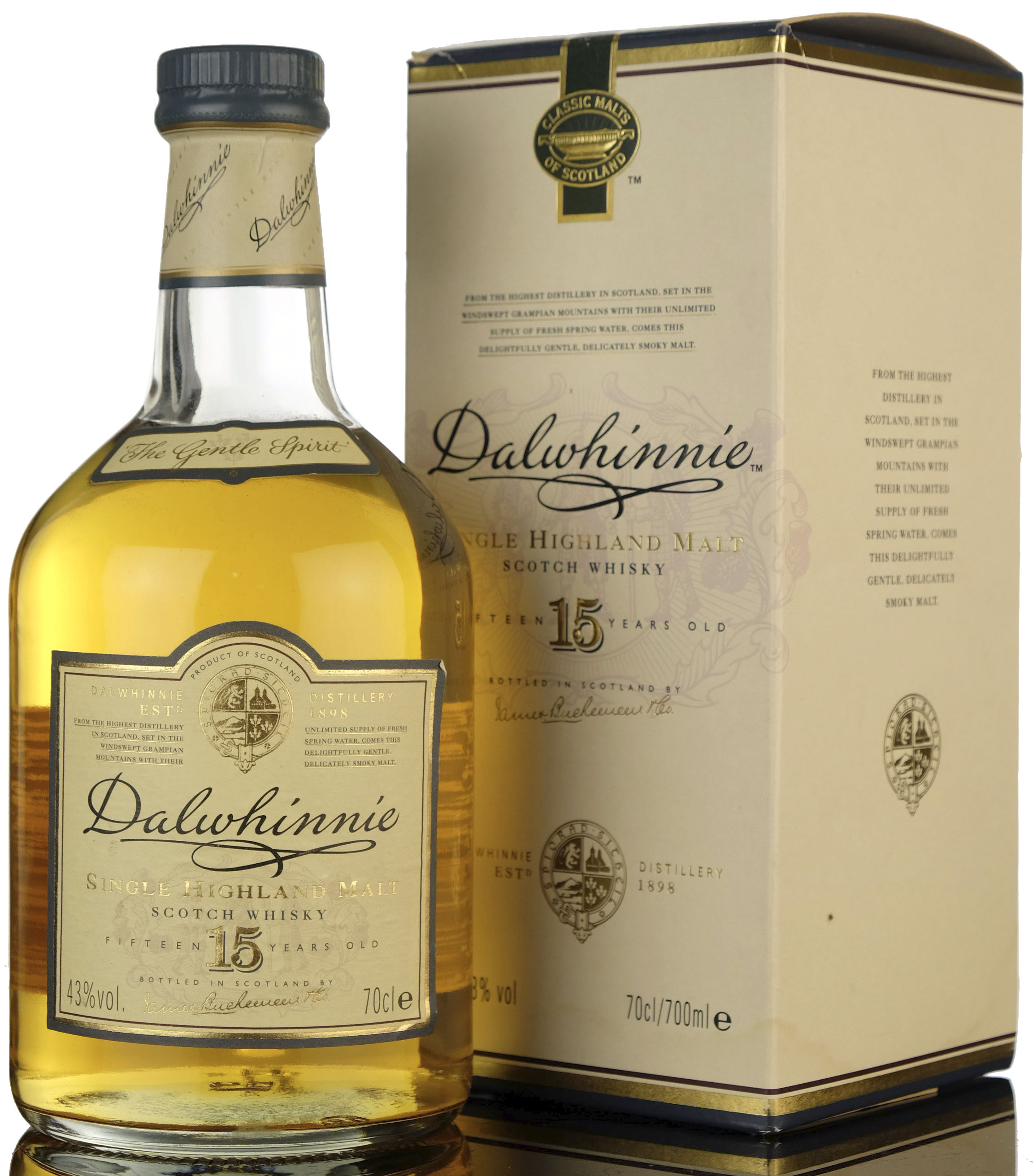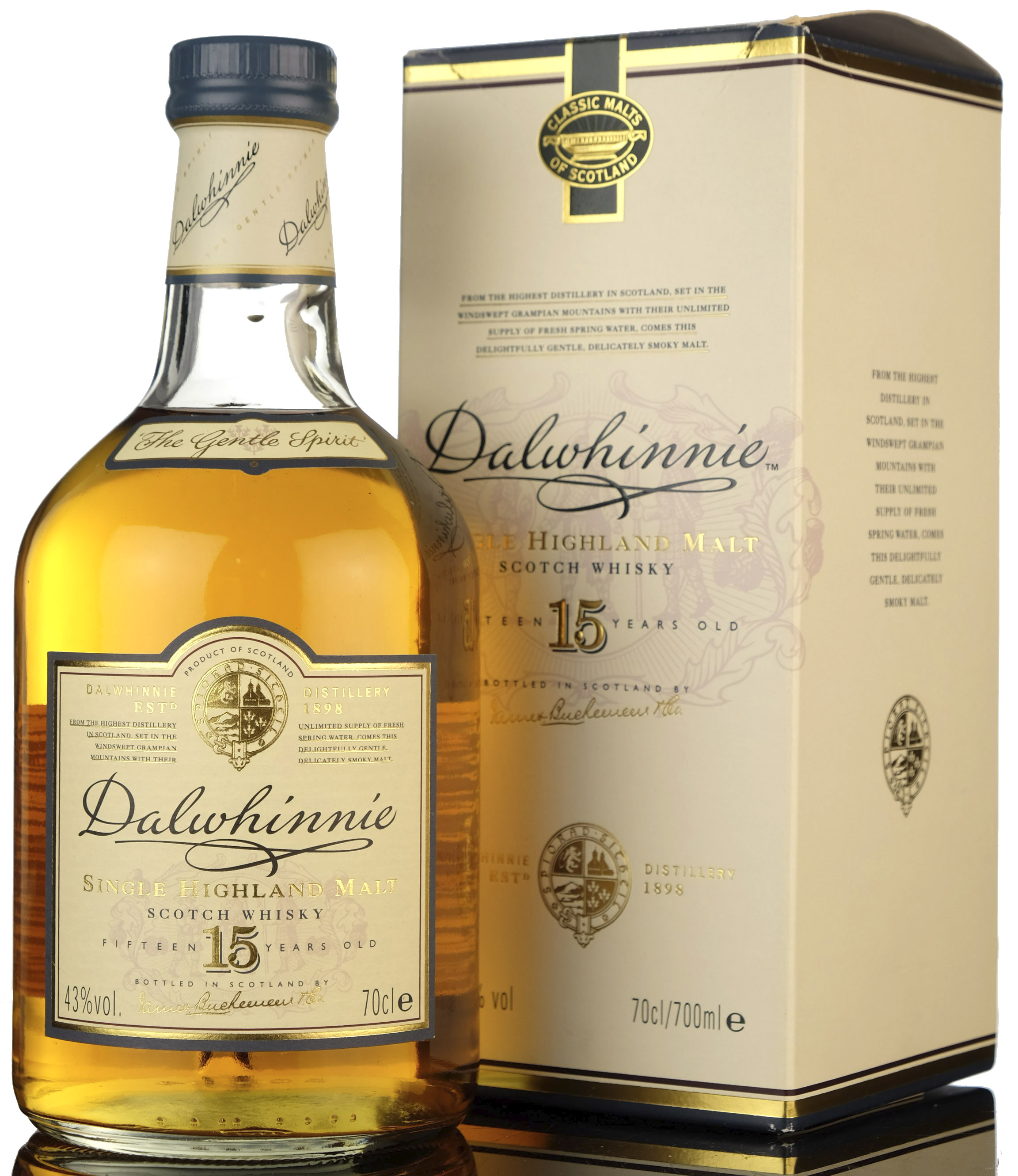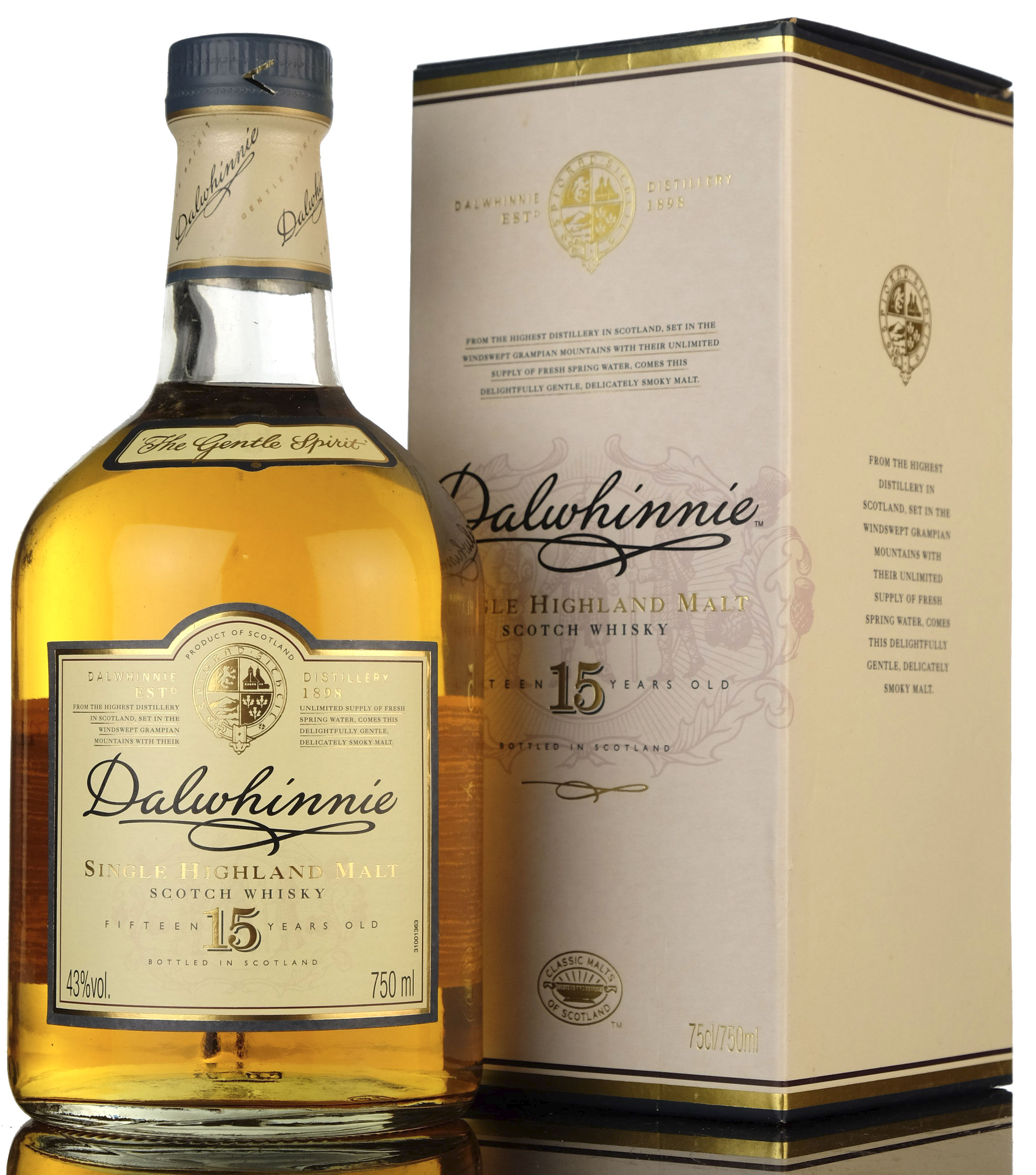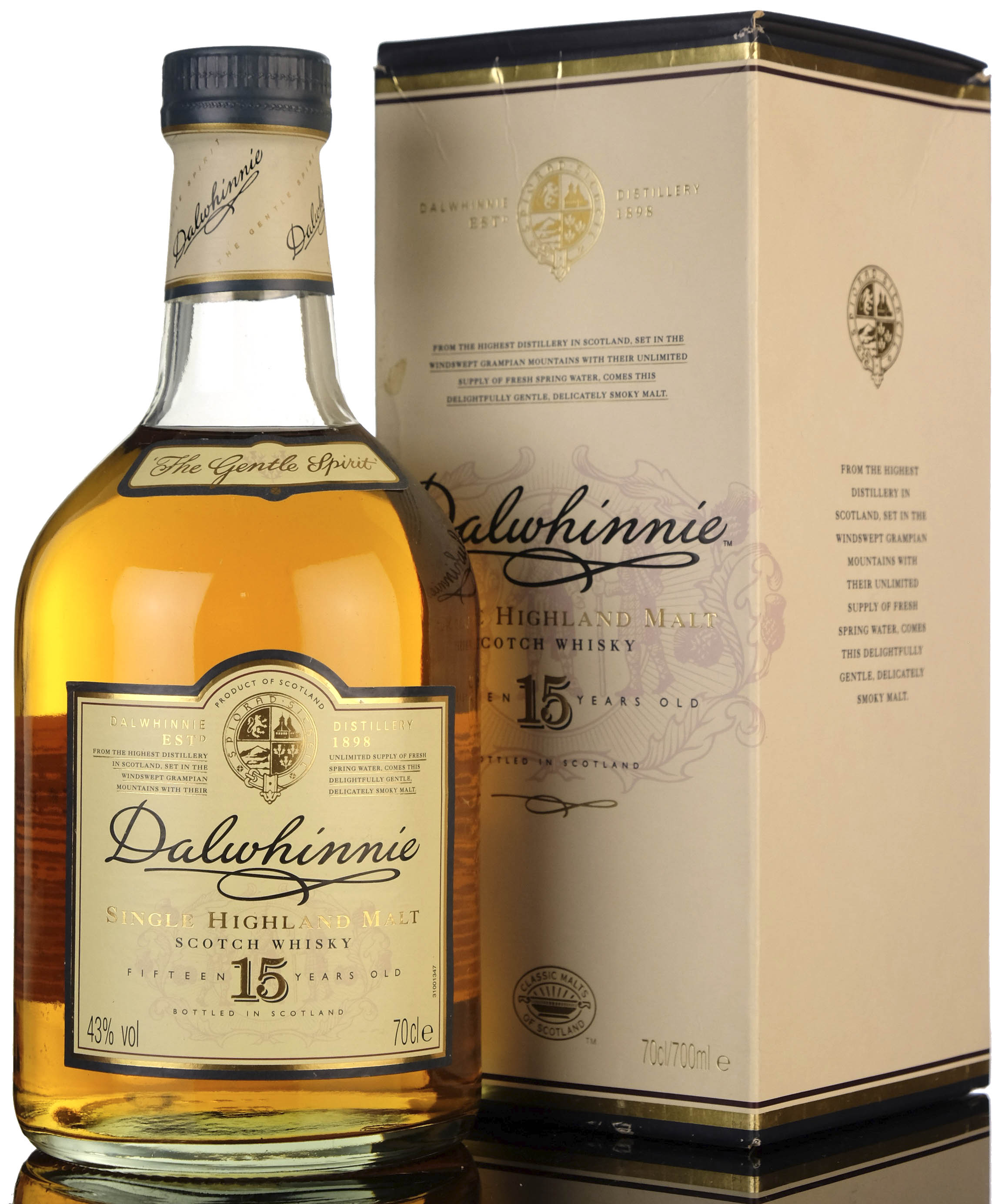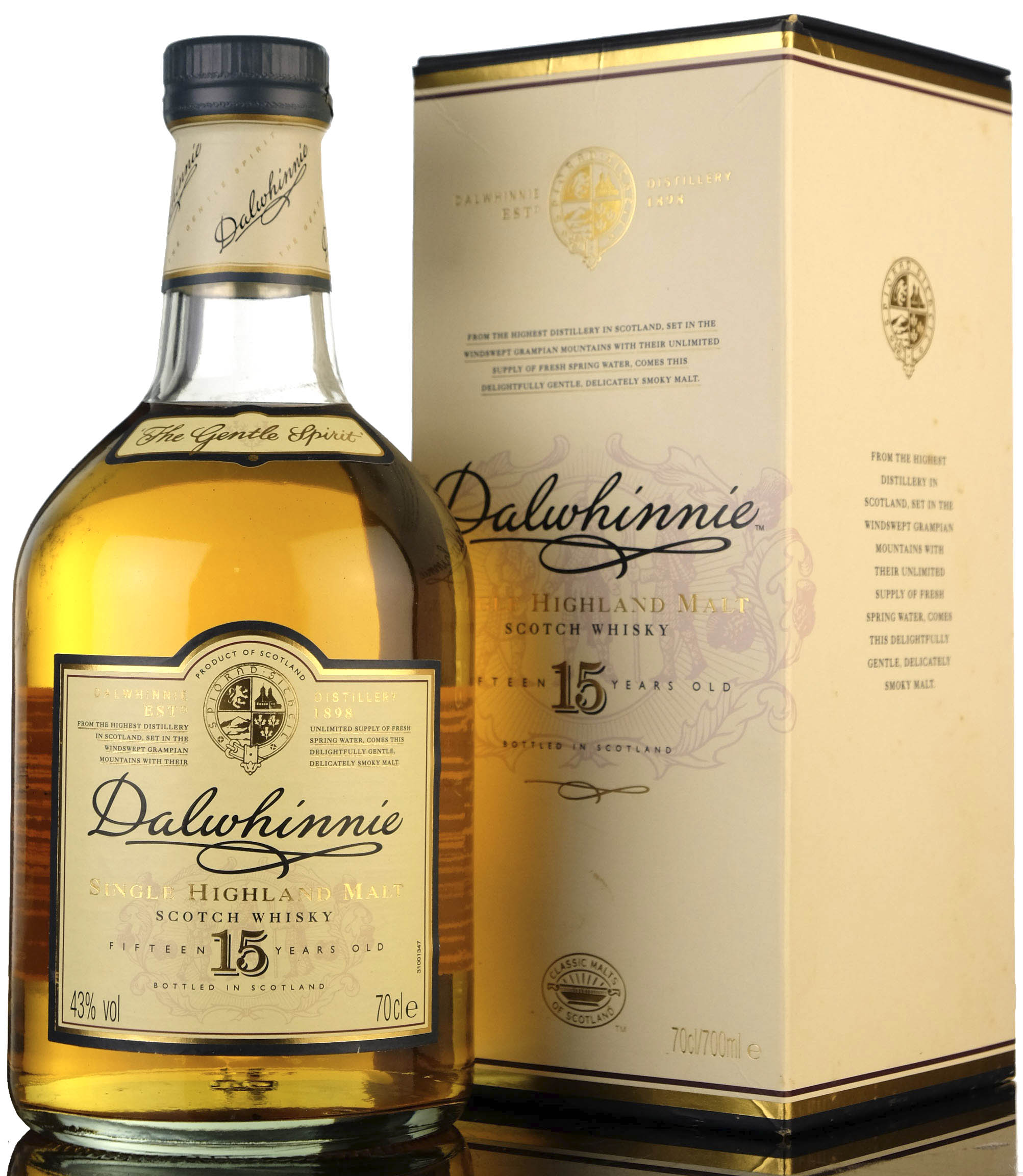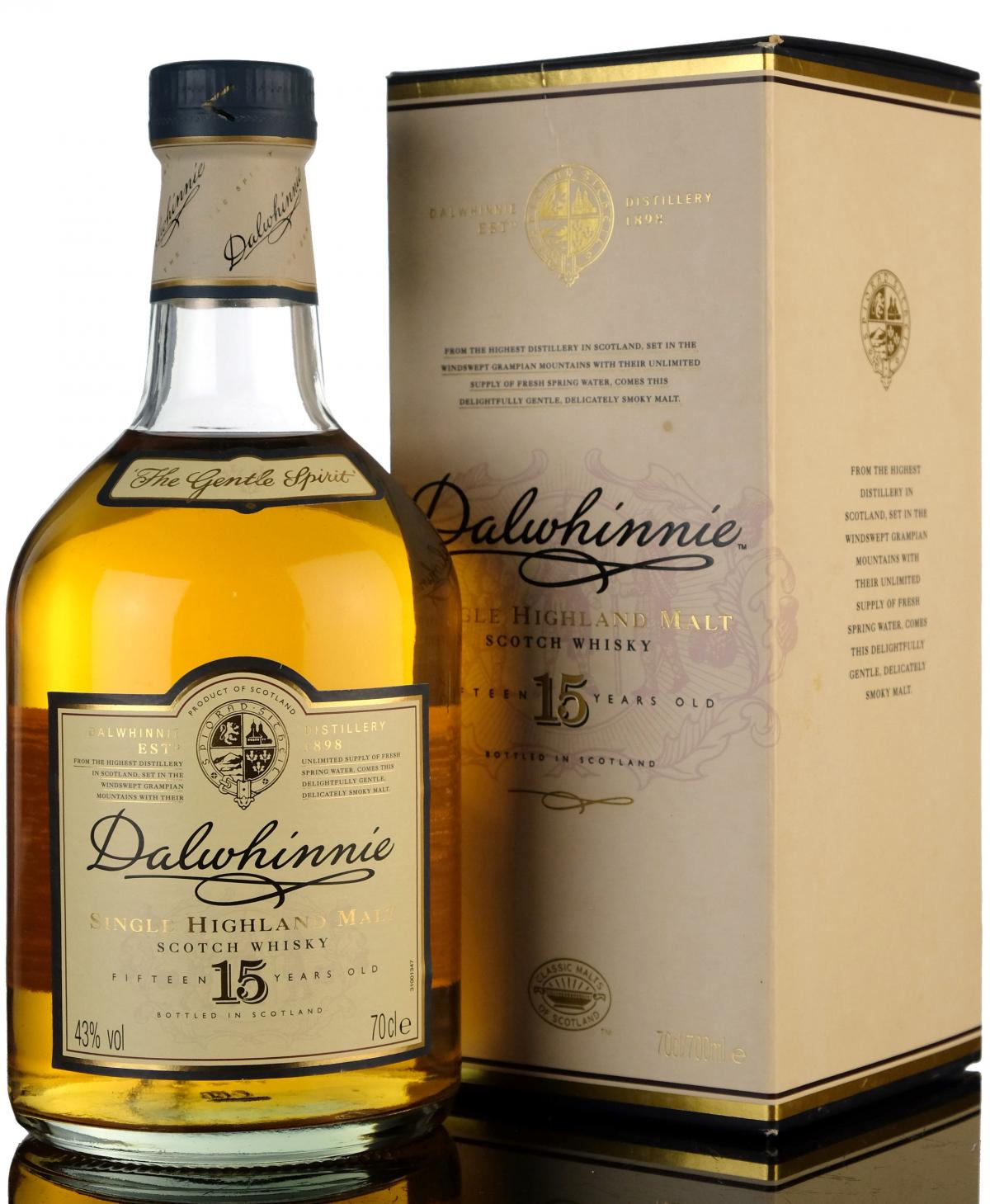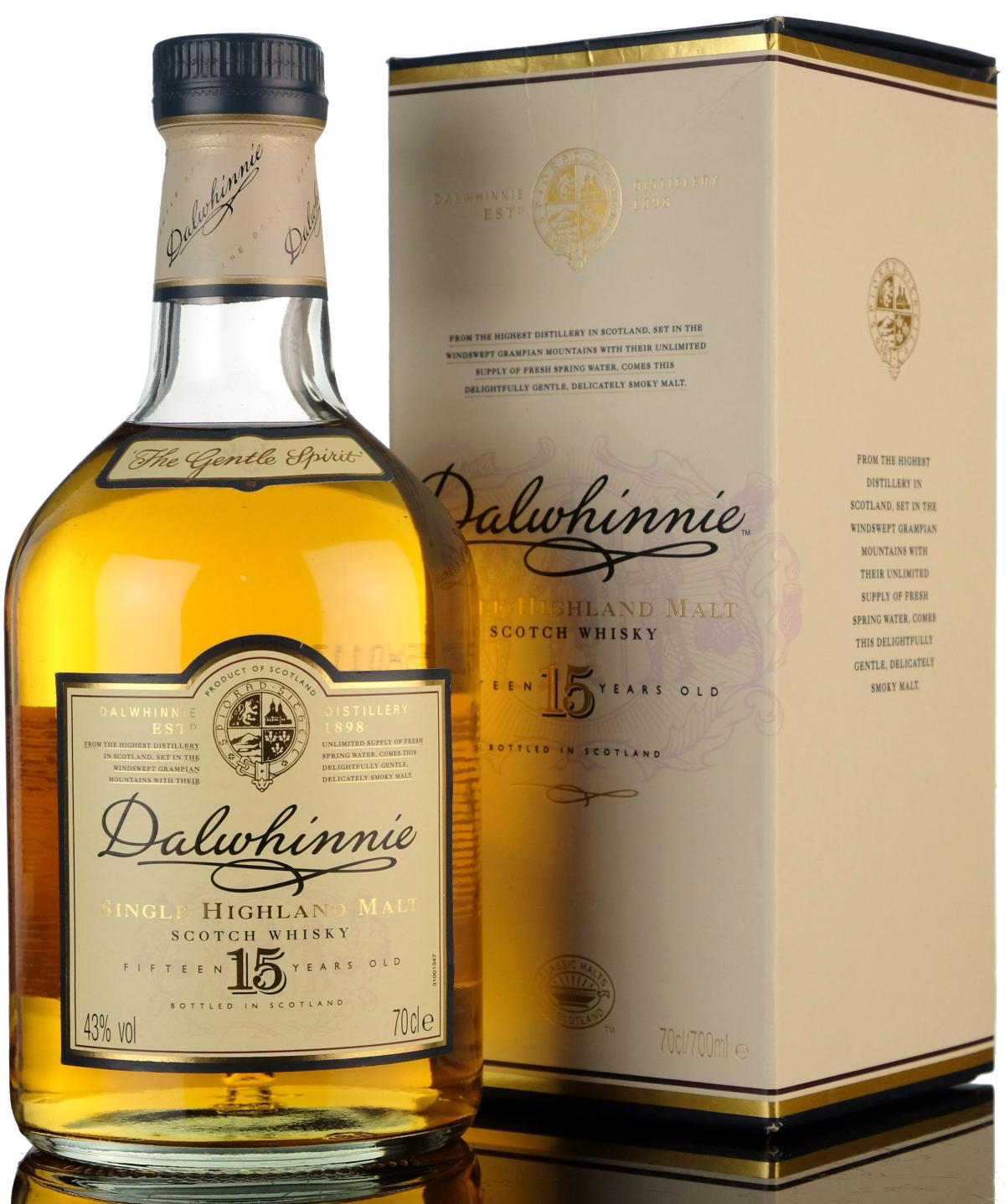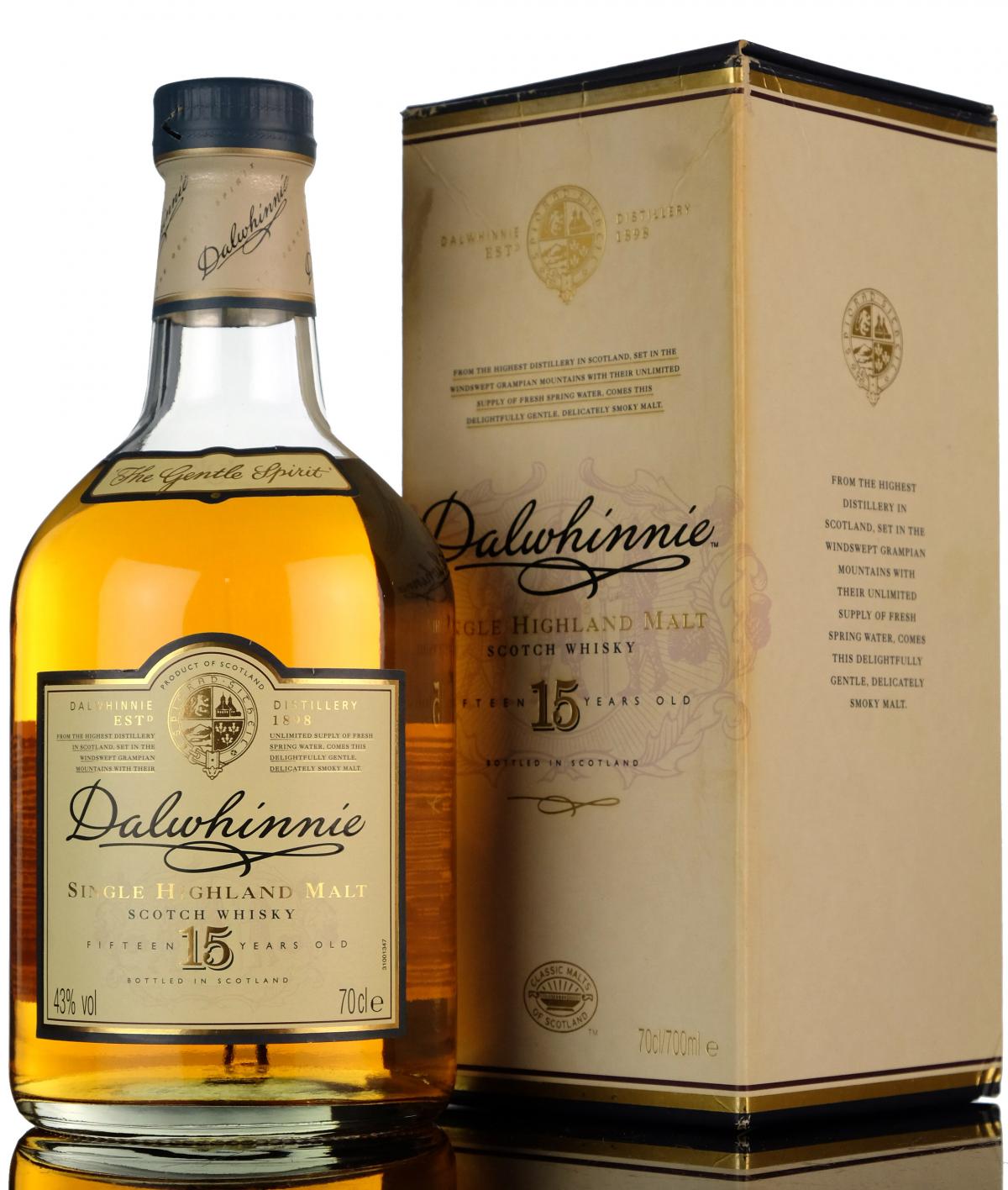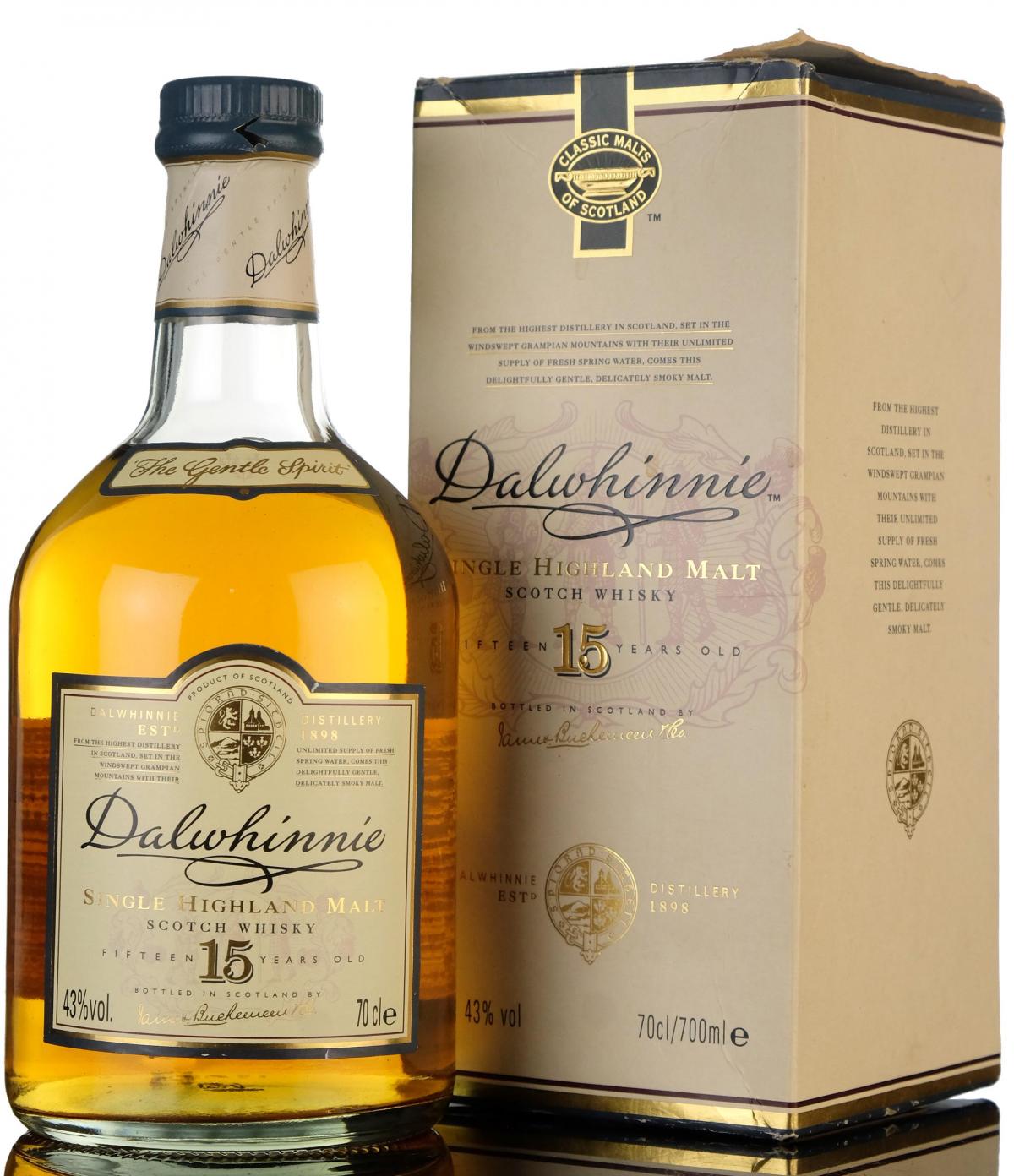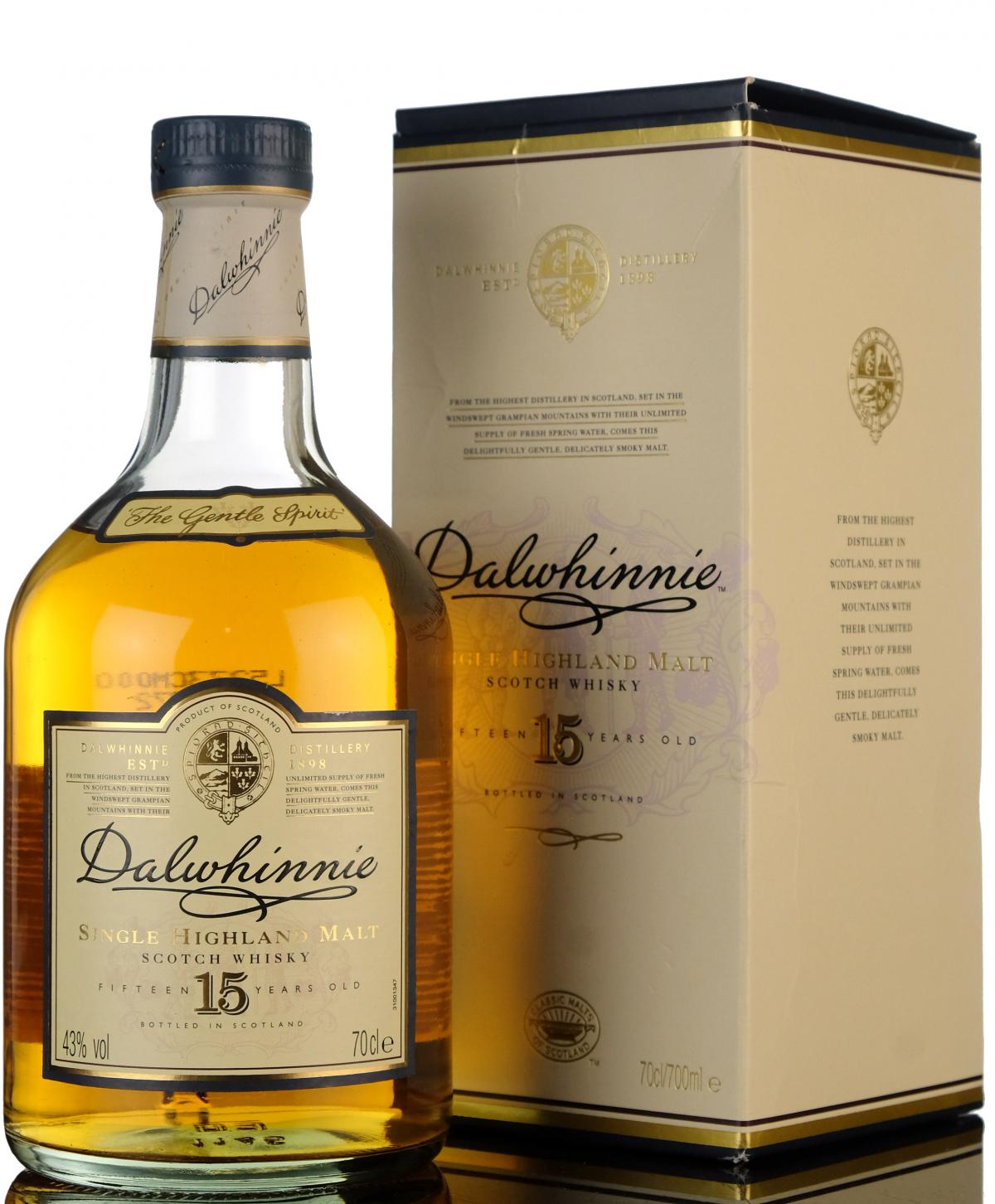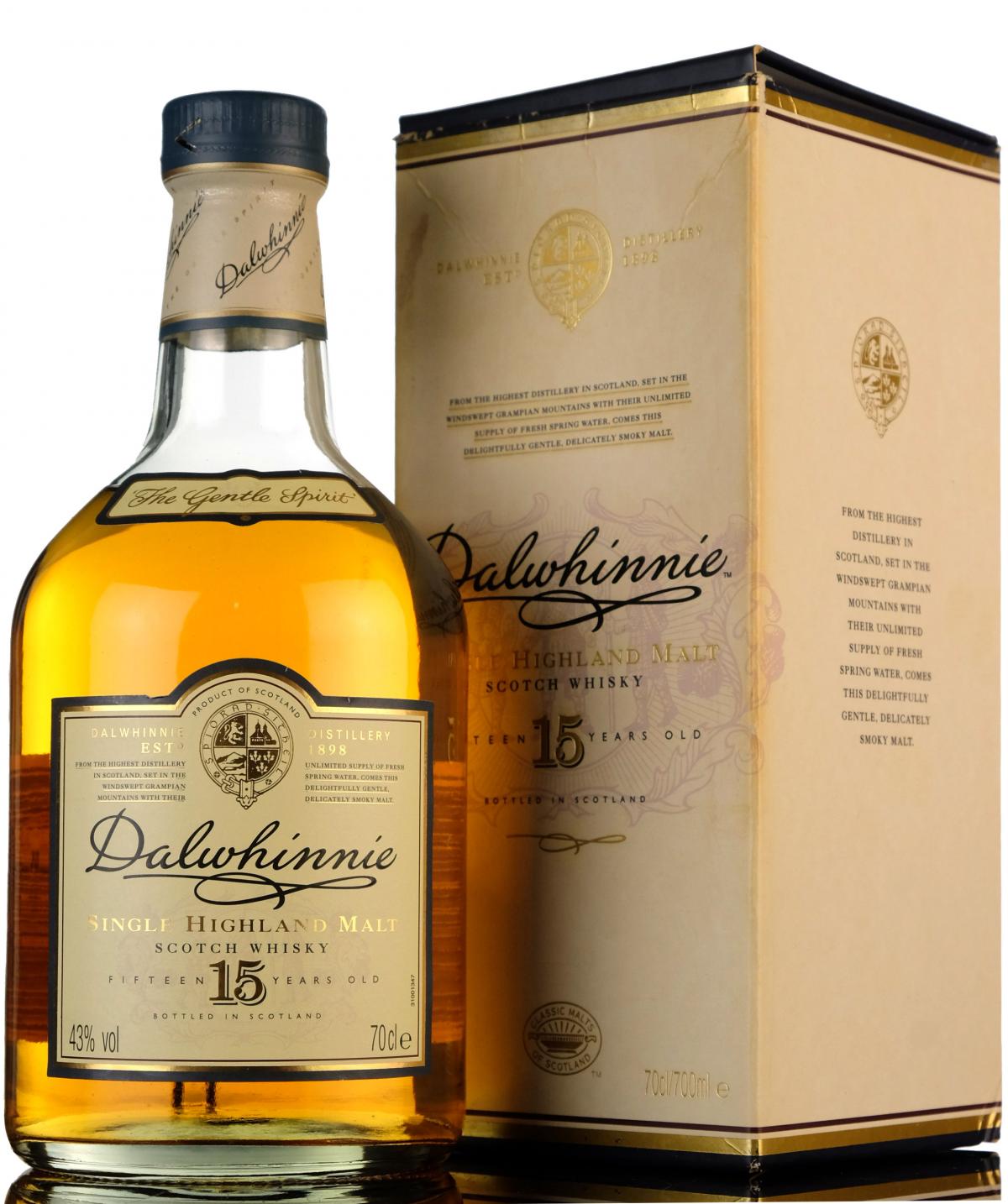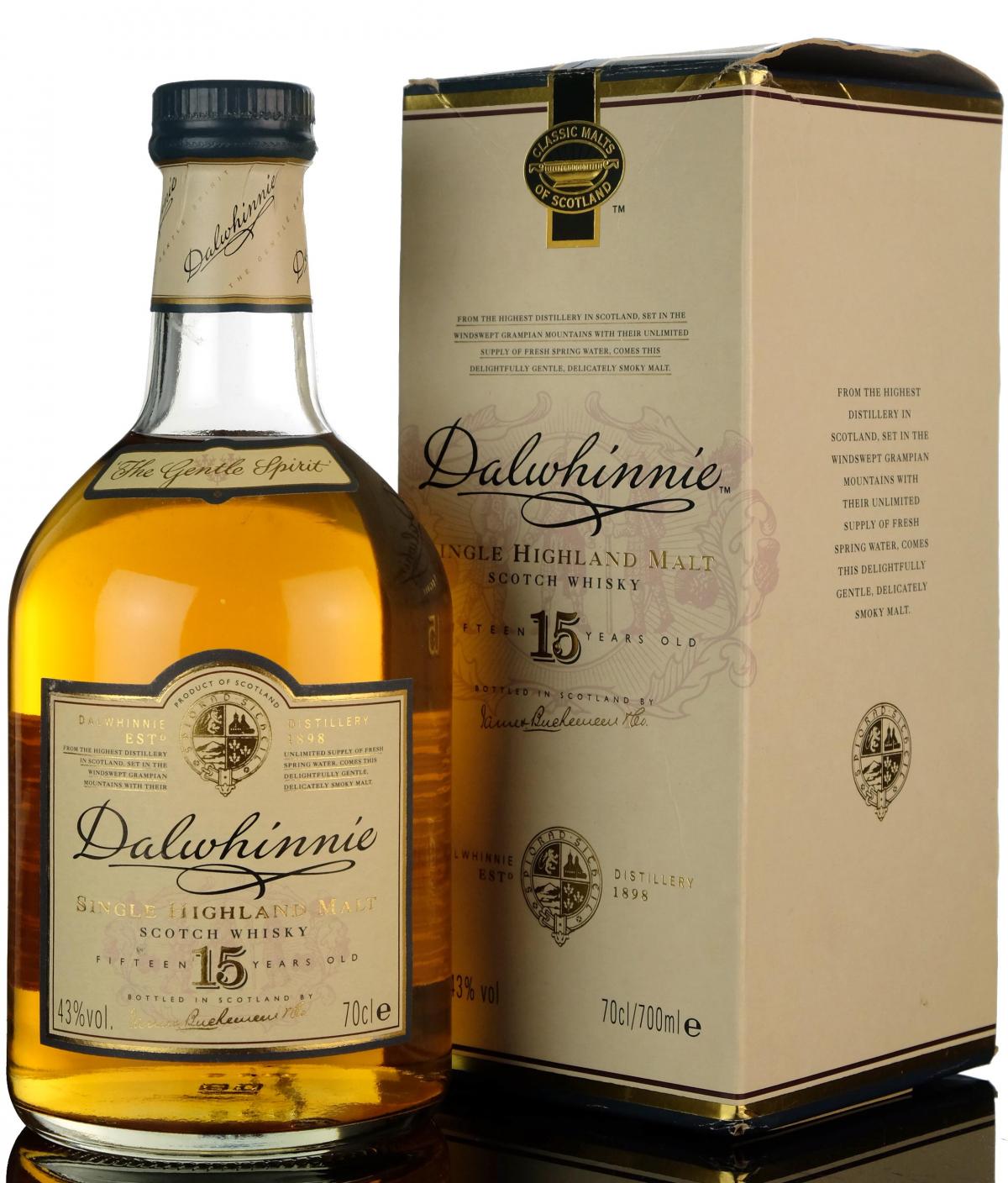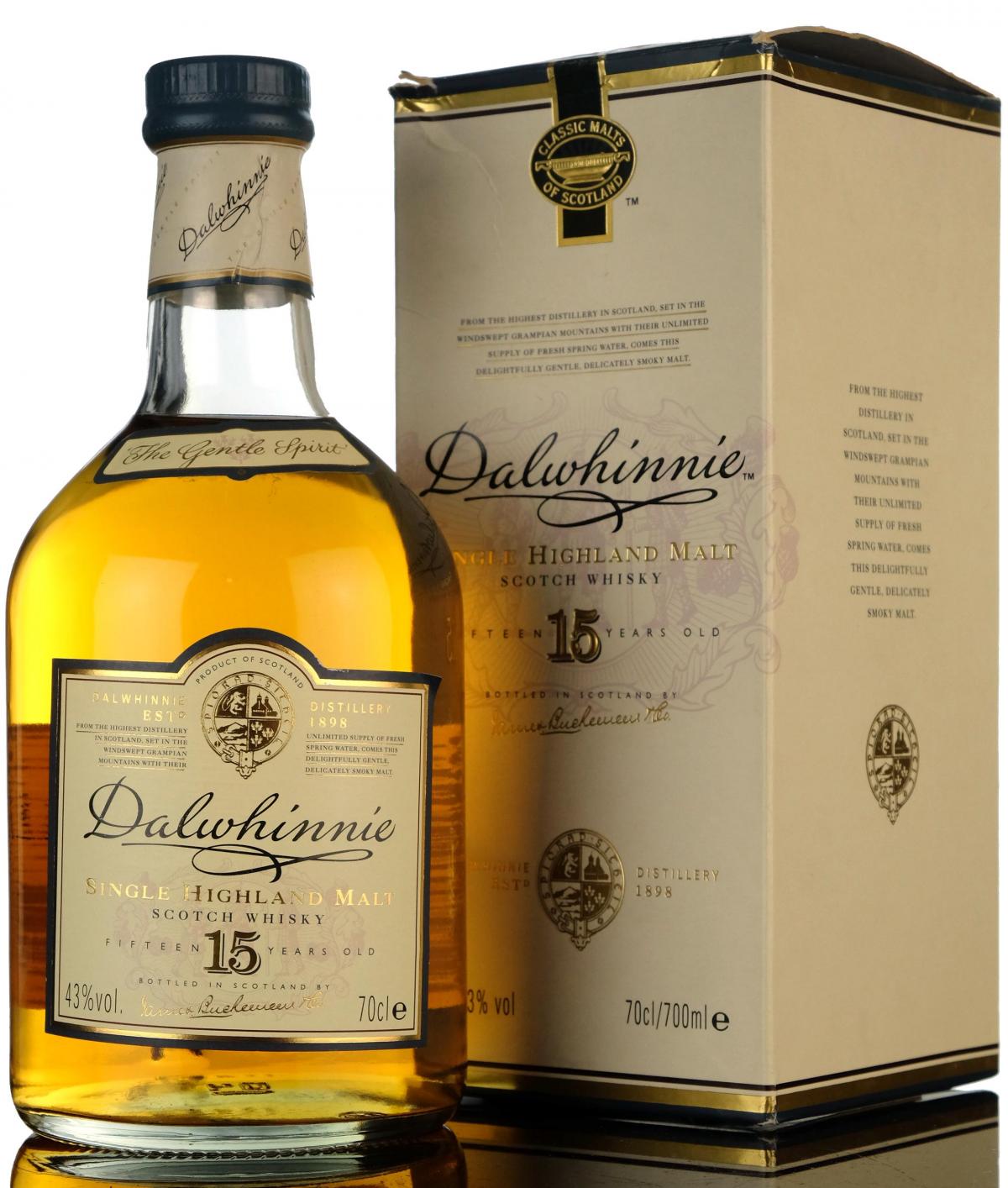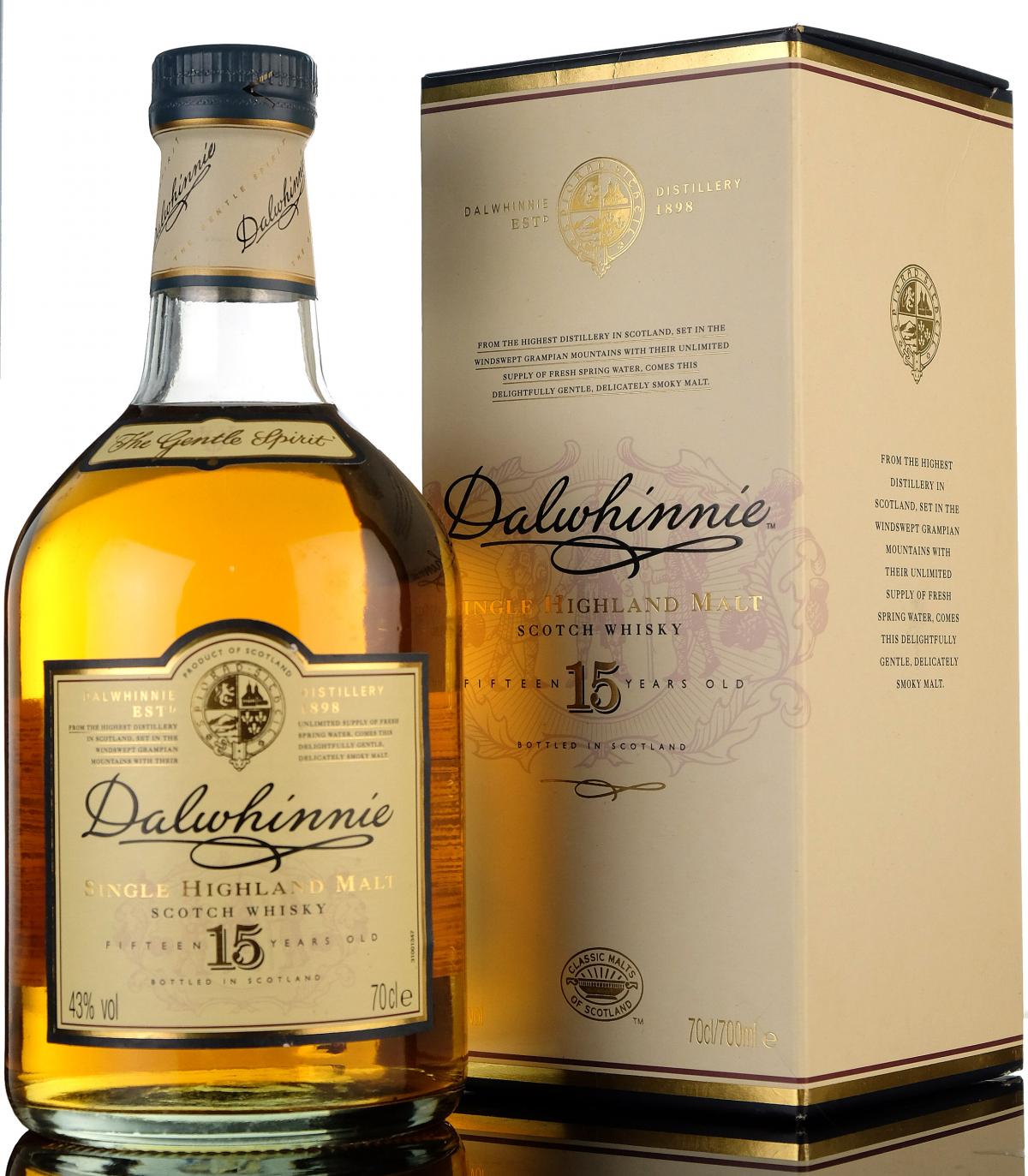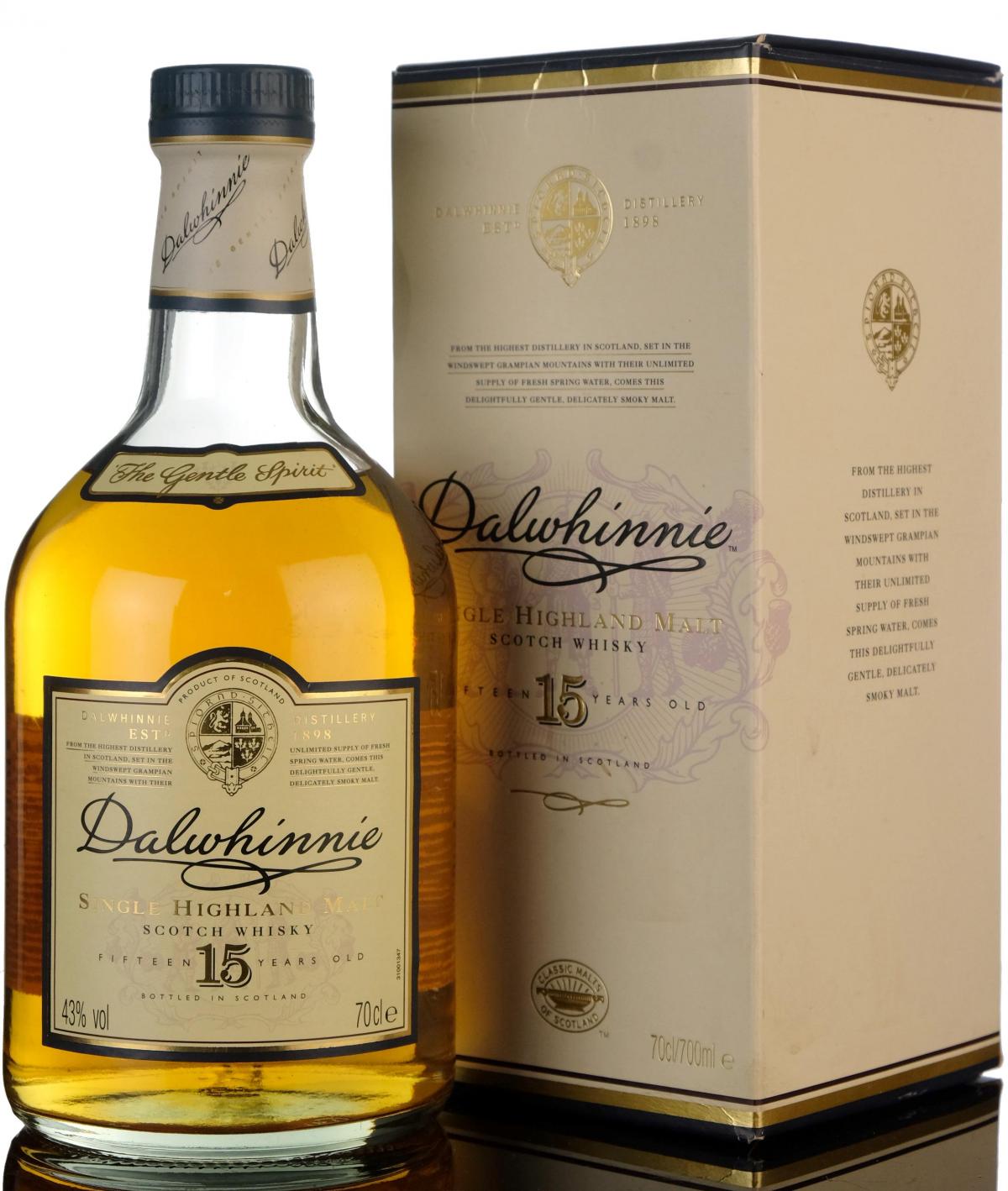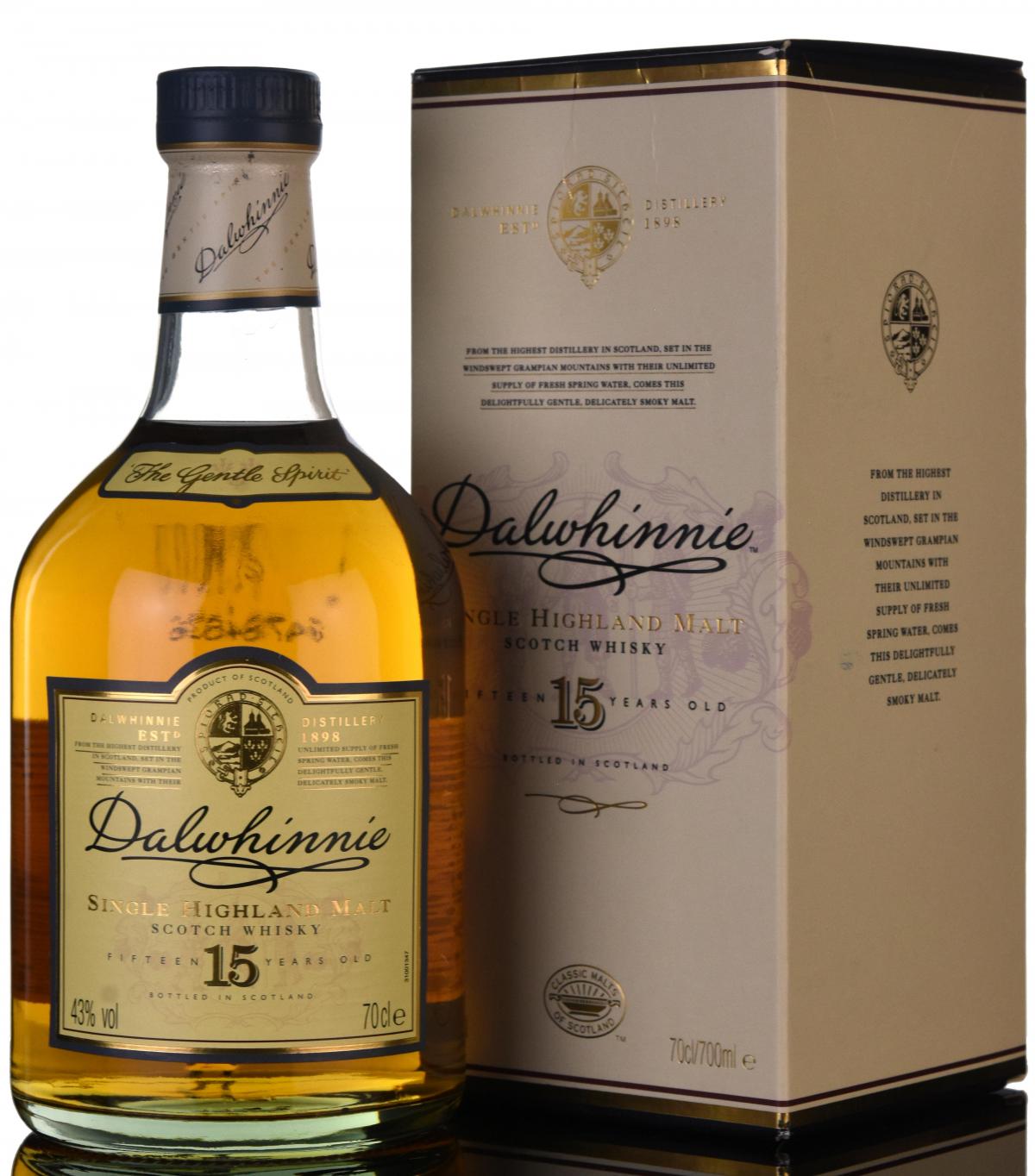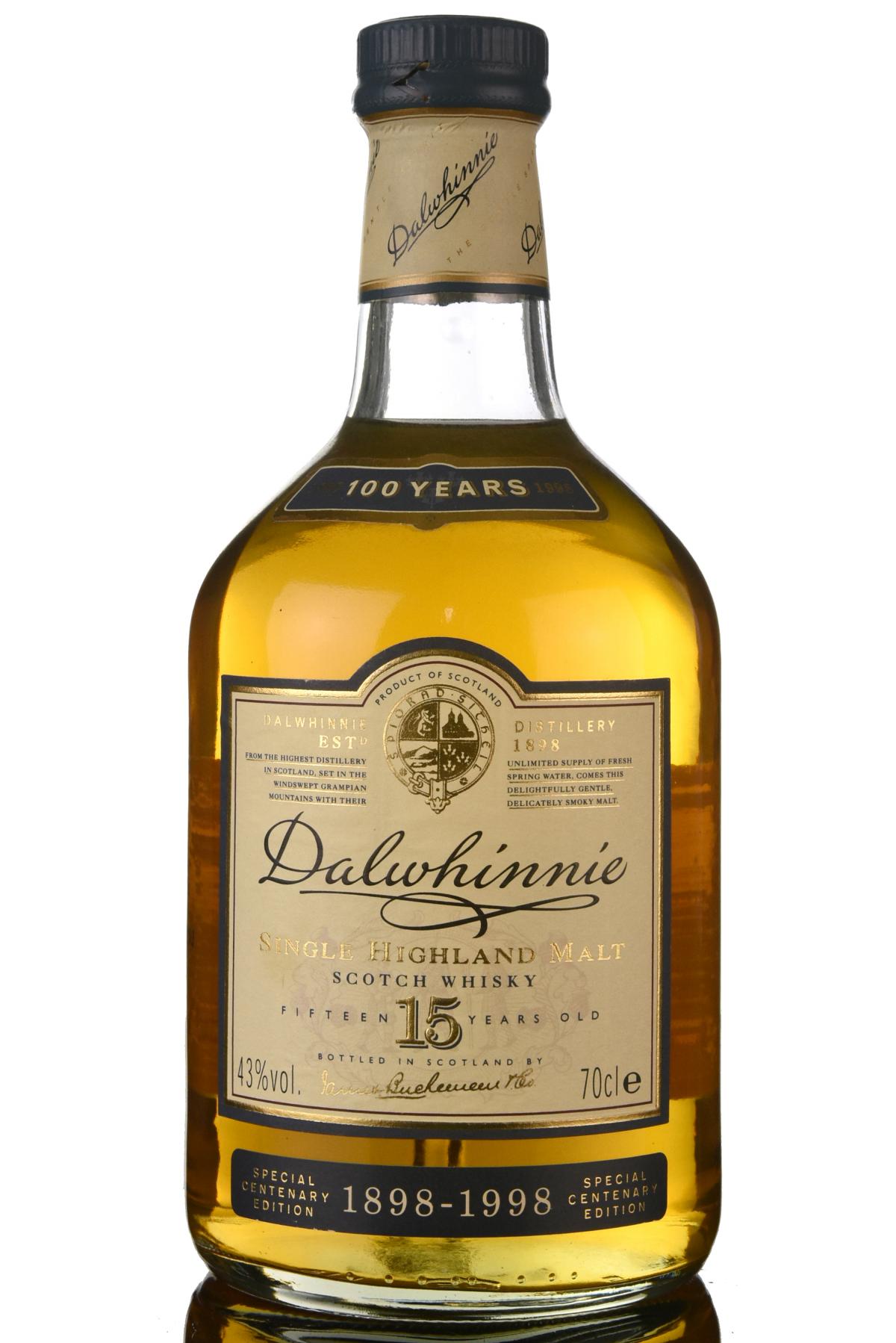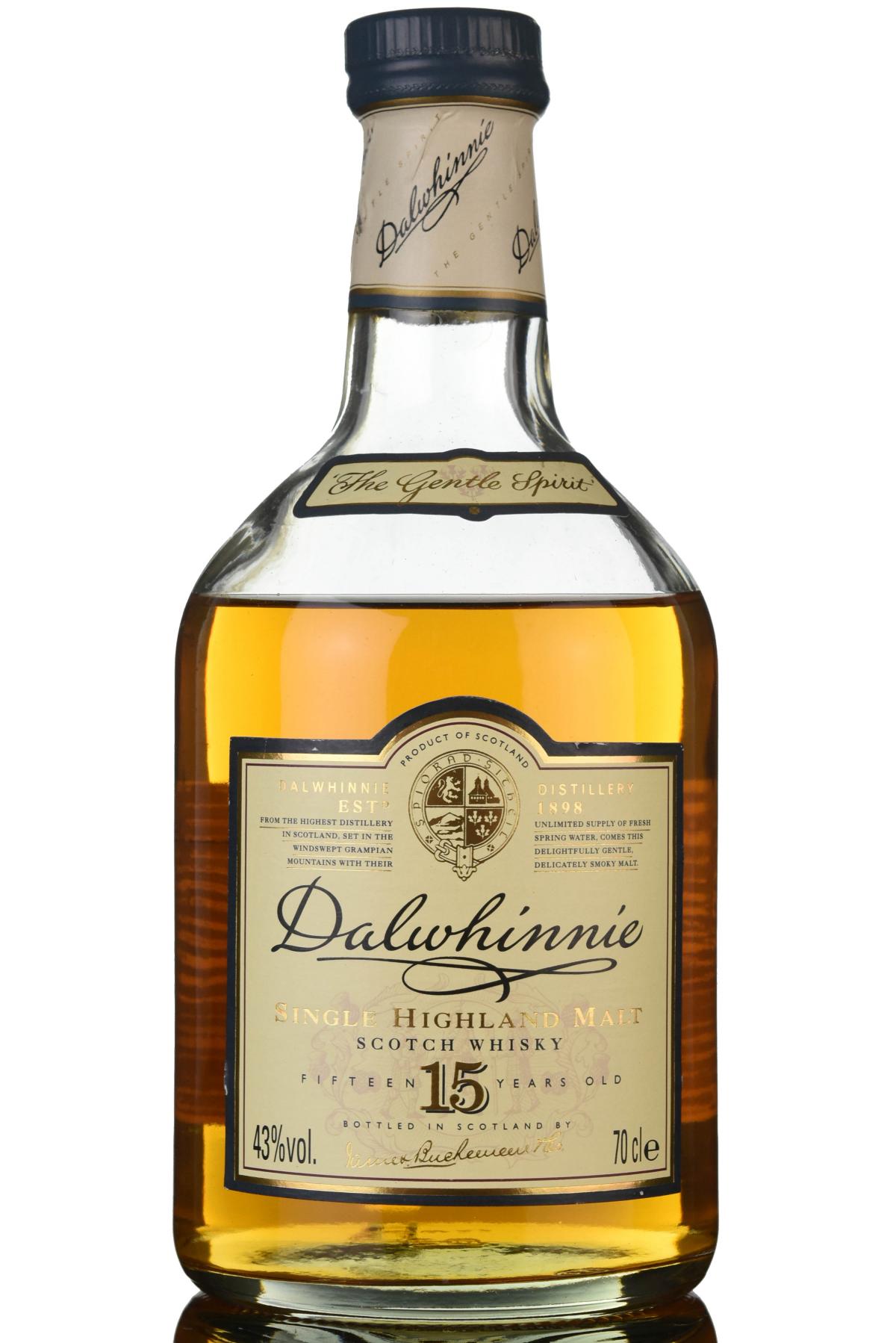Total Lots Sold:
46
View Lots
Do you have this bottle for sale?
SELL IT TODAYHAMMER PRICE OVER TIME
This graph displays data solely from Whisky-Online Auctions past sales history. Please note the filling level of the liquid and the condition of an item can affect the price negatively, so please check individual Lot sales below if there's a sudden dip in the graph.
HAVE ONE FOR SALE?
Submit your details along with an image and a description of your bottle. We'll then be in touch with the best way to proceed.
WHY SELL WITH WHISKY-ONLINE AUCTIONS?
0% Sellers Commission
Free Collections Available
Over 30 Years In The Whisky Industry
Over 1,700 Five Star Trustpilot Reviews
We Sell The Rarest Whiskies Ever Bottled
Global Buying Audience Including Far East Buyers
Bespoke Auction Platform
Thousands Of Active Bidders
Large Database Of Newsletter Subscribers
Over 36k Social Media Followers
Dalwhinnie 15 Year Old - Early 2000s
Dalwhinnie 15 Year Old. Bottled early 2000s. 70cl. 43%.
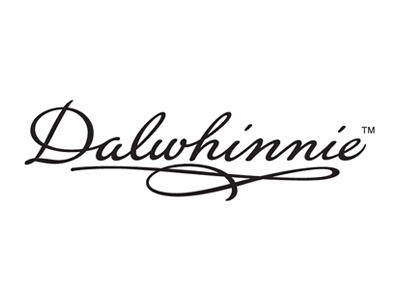
Dalwhinnie distillery was established in 1898 and became part of Diageo forerunner DCL in 1926. The distillery was catapulted to fame in 1987 as the Speyside representative in the Classic Malts range launched by DCL’s descendant United Distillers to highlight whisky’s regional diversity. Dalwhinnie is often incorrectly cited as Scotland’s highest distillery - that honour belongs to Braeval, whose altitude is 9ft higher.
Unusually for the Classic Malts, the dumpy-bottled Dalwhinnie 15-year-old was already a pre-existing single malt from DCL subsidiary James Buchanan and was absorbed into the Classic Malts with its strength bumped to 43%. After a popular cask strength Centenary Edition 15-year-old from 1998, Dalwhinnie became a regular in Diageo’s Special Releases, with several appearances since 2002. These have fared better than the uninspiring Winter’s Gold and Game of Thrones NAS releases. Independent bottlings of Dalwhinnie whisky are virtually non-existent.
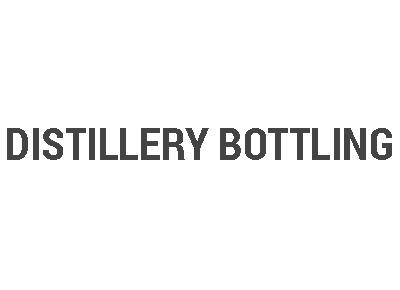
Distillery bottlings are, as the name suggests, bottled by or for the distillery from which the whisky has originated and are thus often referred to as Official Bottlings or OBs. Distillery bottlings are generally more desirable for collectors and usually fetch higher prices at auction than independent bottlings. They are officially-endorsed versions of the whisky from a particular distillery and are therefore considered the truest expression of the distillery’s character.
This ideal of the distillery character is regarded so seriously by the distilleries and brand owners that casks of whisky that are considered to vary too far from the archetype are frequently sold on to whisky brokers and independent bottlers. When this happens, it is often with the proviso that the distillery’s name is not allowed to be used when the cask is bottled for fear of diminishing or damaging the distillery’s character and status.


